Aphrodite II
touch longing and let it touch you back
Aphrodite’s mythology is rich and layered, full of contradictions and complexities. In this piece, I hope to explore some of the additional aspects of her story, while also sharing more (okay, an insane amount) of art inspired by her. Along the way, other myths appear briefly. These deserve deeper attention too and I hope to return to them in future writings.
Love’s mirror
Aphrodite says
"this will also be all my doing".
the way love is,
the way pleasure breathes,
the way Eros and Psyche swirl
like myth-made flesh.
the way doves
and geese
and swans
fly your wishes to heaven.
red rose
stained from bloody hands
and thorns.
your open heart
knowing it is safe,
guarded by the ocean.
the same ocean you swim in.
the one I swam out of
that day when flower petals
rained down on us,
and the Graces-
oh, they danced,
drunk on the wine of life itself.
myrtle crowns,
seashells are my bed,
waves whisper in my ear,
dreams feed me
fruit so sweet
even honey’s ambrosia would weep.
now
stand in the mirror
and look at me.
draped in pearls,
in a gown of dreams.
tell me, my love,
what is it that you need?
and now that you have it,
now look at me.
it was all my doing.
and so
it may be.
Divine & Mortal Affairs
Hephaestus
The god of fire and blacksmithing was Aphrodite’s official husband in many myths, but theirs was a mismatched, often troubled union. Zeus married Aphrodite off to Hephaestus, partly to stop the other gods from fighting over her. Their marriage represents the clash between passion and craftsmanship/order. It also reflects societal tensions about arranged marriages and infidelity at the time.
Ares
Aphrodite's most famous divine affair was with Ares, the god of war. From their love came to be Eros, the god of love and attraction, Anteros, the god of requited love, Phobos and Deimos, personifications of fear and terror, respectively, who accompanied Ares into battle and Harmonia, the goddess of harmony and concord. Homer tells us that their affair was famously exposed when Hephaestus, Aphrodite's husband, ensnared them in a golden net and displayed them to the other gods. Their pairing reflects the deep mythological idea that love and war are very similar, both intense, both disruptive.
Hermes
Aphrodite and Hermes had a son named Hermaphroditus, who possessed both male and female physical traits. According to myth, the nymph Salmacis fell in love with Hermaphroditus and prayed to be united with him forever, resulting in their bodies merging into one.
Dionysus
The union of Dionysus & Aphrodite symbolizes the fusion of physical love and ecstatic experience. together they had Priapus, a fertility god often depicted with exaggerated male genitalia, symbolizing abundance and protection and Peitho, the goddess of persuasion and seduction.
Poseidon
This union brings together love and the emotional, unpredictable forces of the sea. Think passion meets chaos. Some myths say Poseidon offered to marry Aphrodite or comfort her after her humiliation due to her affair with Ares. She refused a full commitment, but they did become lovers. This resulted in Rhodos, the goddess and personification of the island of Rhodes and Herophilos.
Nerites
Nerites was a stunningly beautiful sea god and Aphrodite's first love. In one version, Aphrodite fell in love with him before ascending to Olympus and asked him to come with her, but he refused, preferring the sea. Heartbroken, Aphrodite transformed him into a shellfish.
Anchises
Anchises was a handsome Trojan prince and shepherd, known for his beauty. According to the Homeric Hymn to Aphrodite, Zeus, annoyed that Aphrodite constantly made gods fall in love with mortals, punished her by making her fall deeply in love with one herself, Anchises. Disguised as a mortal woman, Aphrodite seduced Anchises on Mount Ida. After they slept together, she revealed her true identity, which terrified him as he feared punishment from the gods for lying with a goddess. From their union came Aeneas, the great Trojan hero who would later be central to Roman mythology as an ancestor of Romulus and Remus.
Adonis
Adonis was born from the myrrh tree that his mother, Myrrha, was transformed into. Aphrodite found the infant and entrusted him to Persephone. Both goddesses fell in love with him, leading Zeus to decree that Adonis would spend part of the year with each. Adonis chose to spend his time with Aphrodite, but he was eventually killed by a wild boar during a hunt. His death deeply grieved Aphrodite and anemones are said to have sprung from her tears.
Butes
Butes was an Argonaut who, after being enchanted by the Sirens, leapt into the sea. Aphrodite rescued him and took him to Sicily, where they became lovers. Their union produced Eryx, a renowned king.
The Judgment of Paris
Perhaps one of the most famous myths associated with Aphrodite is the Judgment of Paris. This story is found in many ancient texts, such as Bibliotheca by Apollodorus, Fabulae by Hyginus, and Pausanias’ Description of Greece. In Homer’s Iliad, one of the most well-known accounts of the Trojan War, it is only briefly mentioned, as Homer assumes his audience already knows the tale. These sources all suggest that the starting point for the Judgement of Paris was the Wedding of Peleus and Thetis.
Peleus was a famous hero of Ancient Greece, whilst Thetis was a Nereid, a sea-nymph. Poseidon and Zeus had both wanted Thetis for themselves, but had been warned off by a prophecy about the greatness of the future offspring of Thetis; so the Nereid was married off to Peleus.
When Eris, the goddess of discord, was excluded from the wedding Zeus held for them, out of spite and anger, she tossed a golden apple into the crowd, inscribed “to the fairest.” Hera, Athena and Aphrodite each claimed it. Zeus refused to put one goddess above another, so Paris, a Trojan prince, was chosen to decide who deserved it.
Hera offered power, she would make him king of Europe and Asia. Athena offered wisdom and the skills for him to become a great warrior. Aphrodite promised him the most beautiful woman in the world, Helen of Sparta. However, Helen was already the wife of the Greek king Menelaus.
Paris chose Aphrodite and Helen was handed over to him. That is how the Trojan War began, with the Greeks’ mission to retrieve her.
This myth paints Aphrodite as vain and manipulative. But it also reveals her deeper truth, that beauty is not passive. It moves history and it can burn cities down.
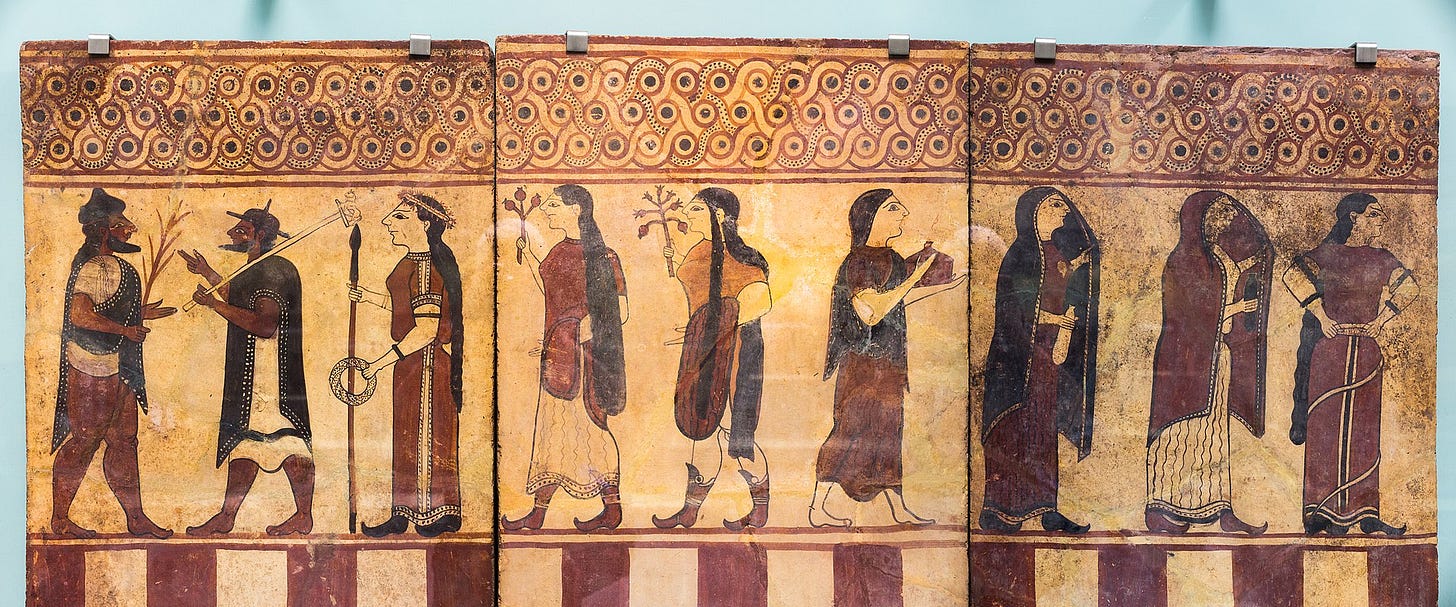
Devotion Through Beauty
Across Greece and Cyprus, temples to Aphrodite once stood filled with offerings of myrtle, doves, roses and honey. She was honored through dance, poetry, ritual bathing and even sacred sexuality. To worship meant to create a relationship with beauty, not as vanity, but as truth.
To live in beauty is to live in presence. To dress the body with care. To move with grace. To taste, touch and feel as if each sensation matters.
Practices for beauty:
🌀sculpting clay with bare hands
🌀 letting someone adore you, fully
🌀smearing honey on your collarbones
🌀walking barefoot through wild violets
🌀 oiling your skin under the moonlight
🌀 writing unsent love letters
🌀 figs, always figs
🌀 adorning your wrists with myrtle



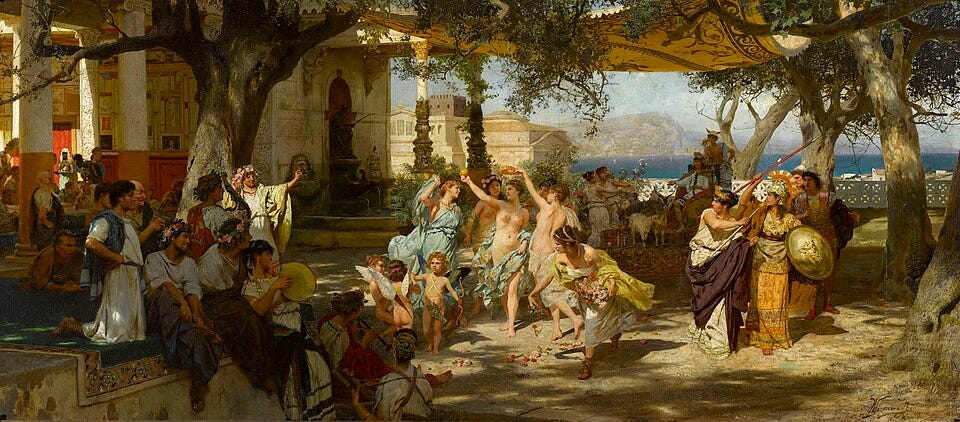
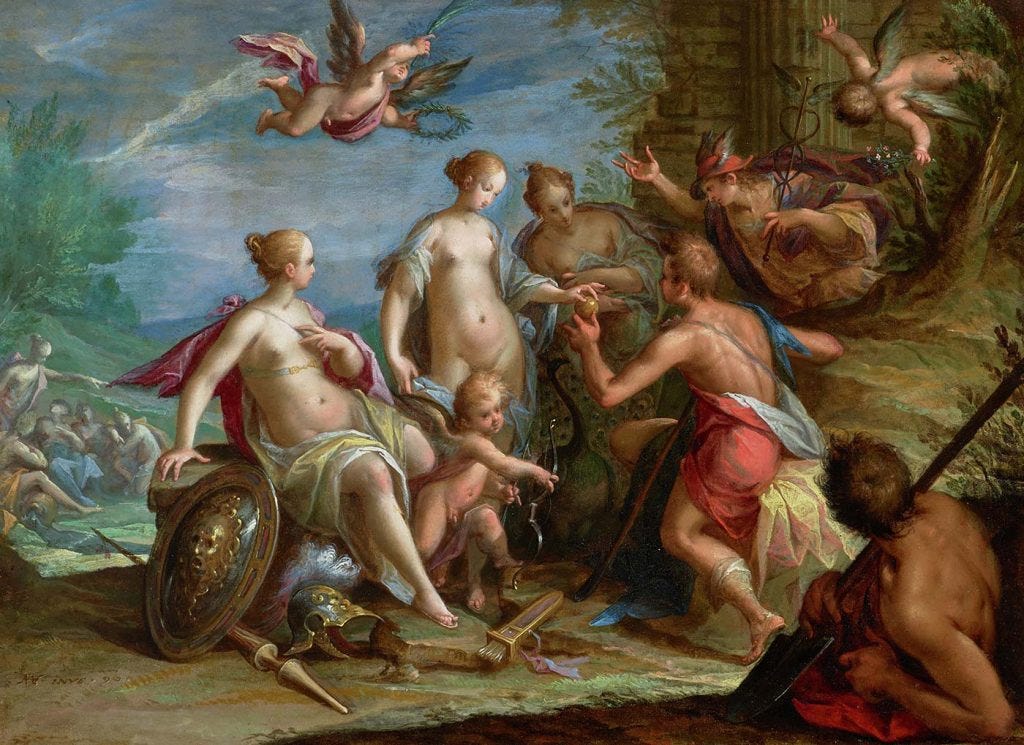
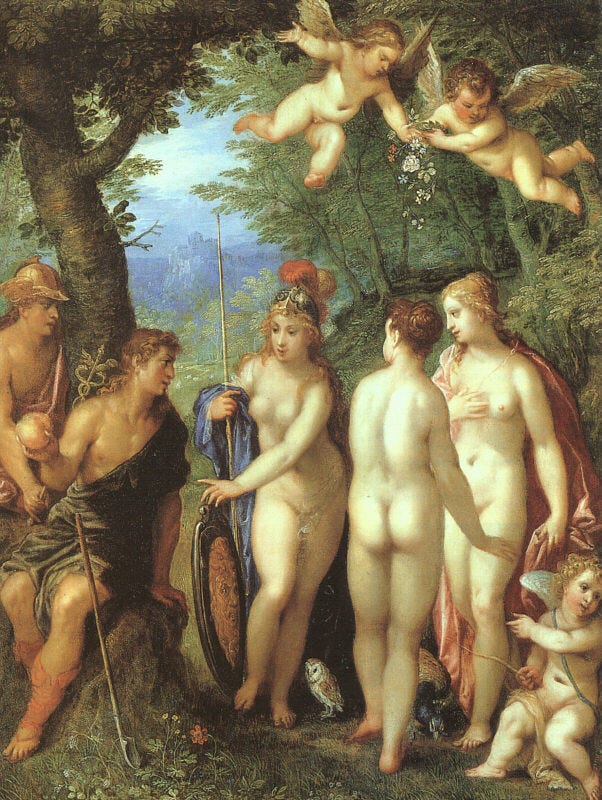
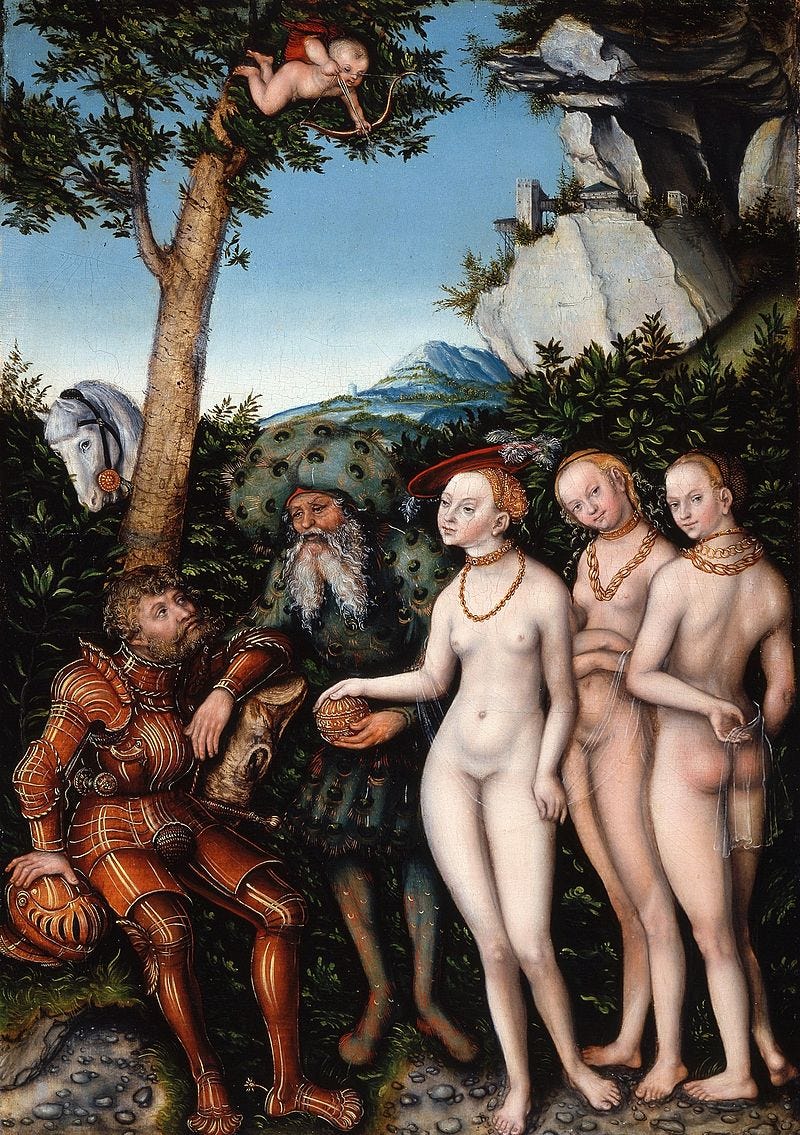
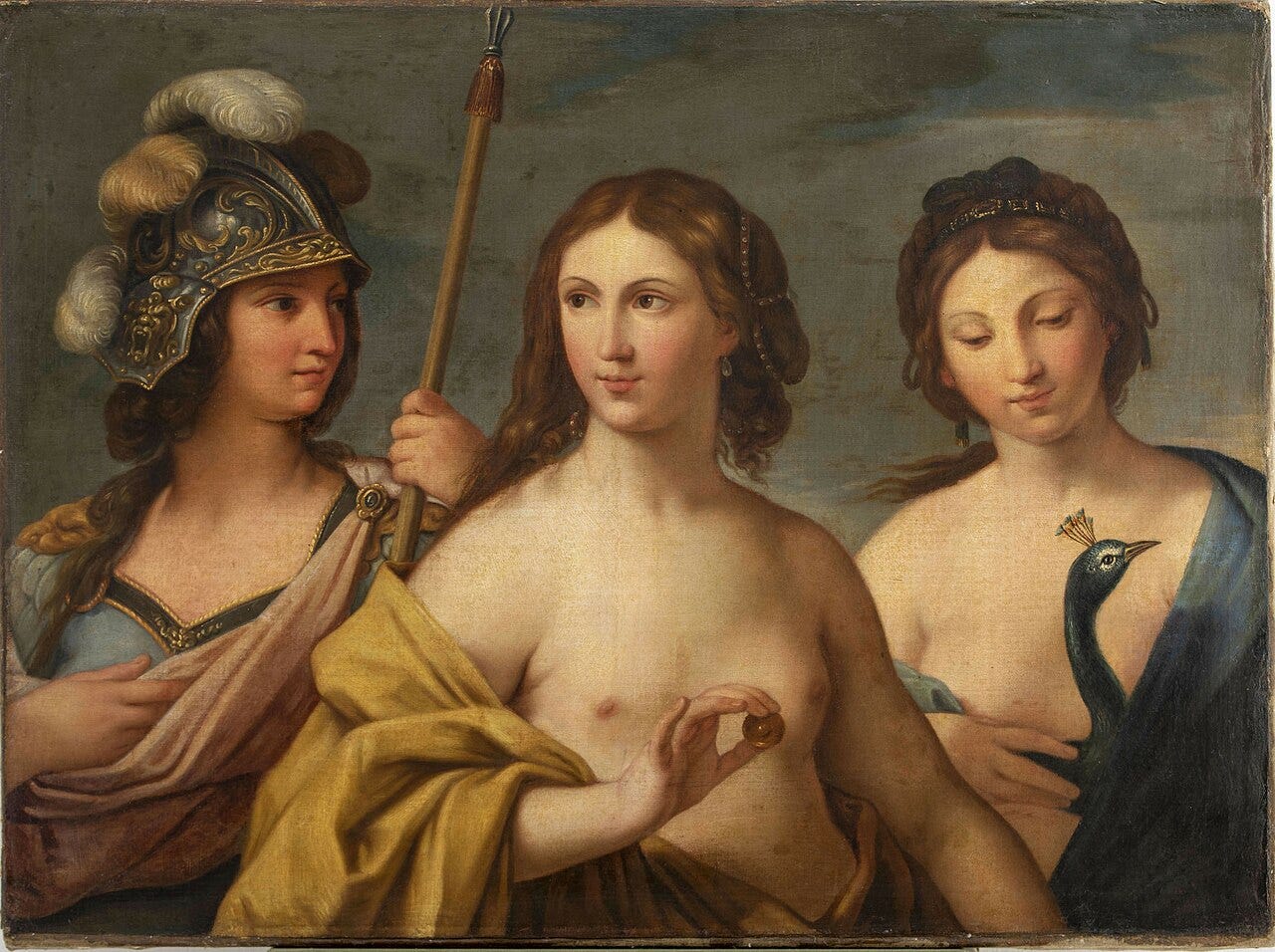
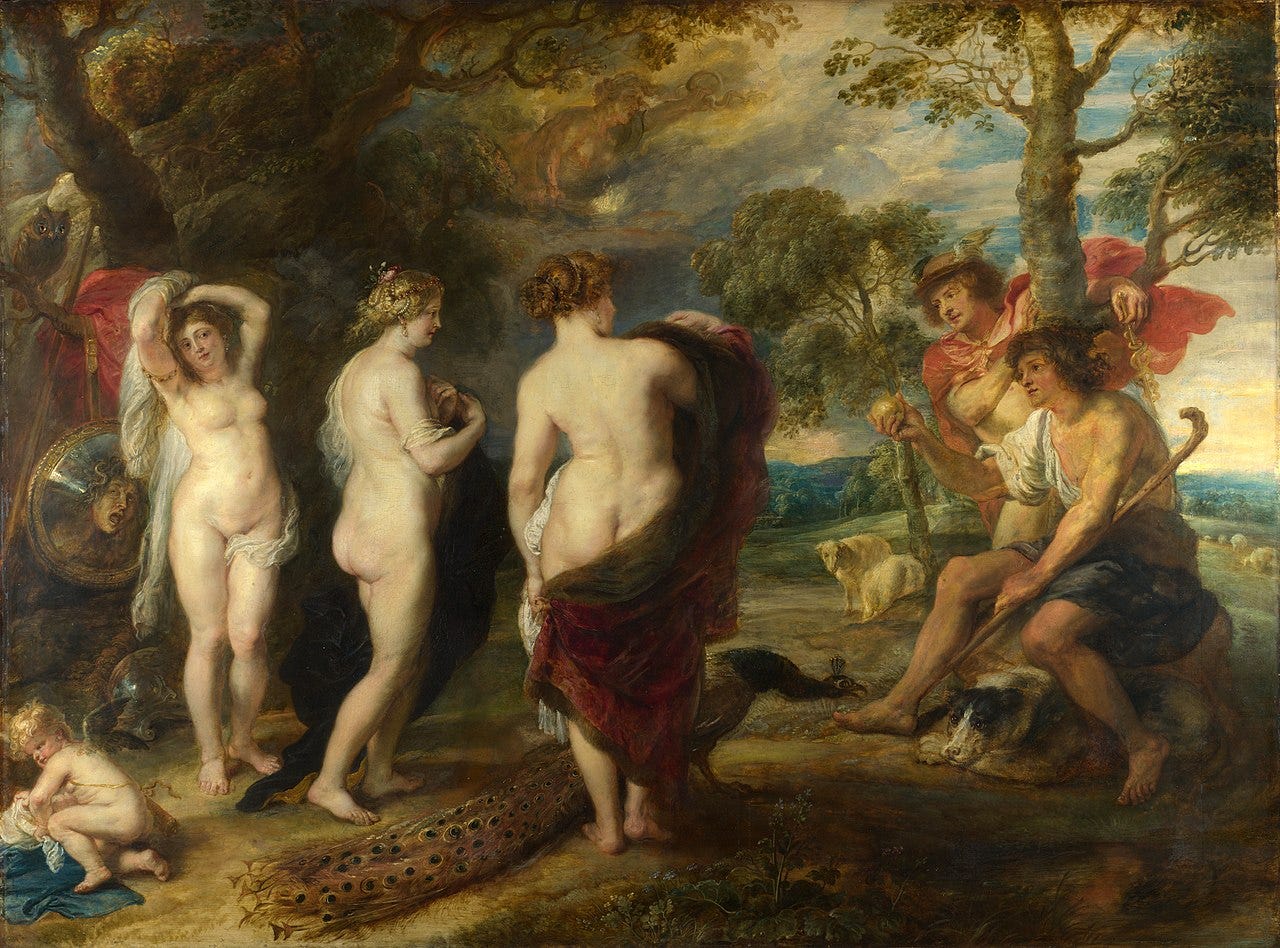
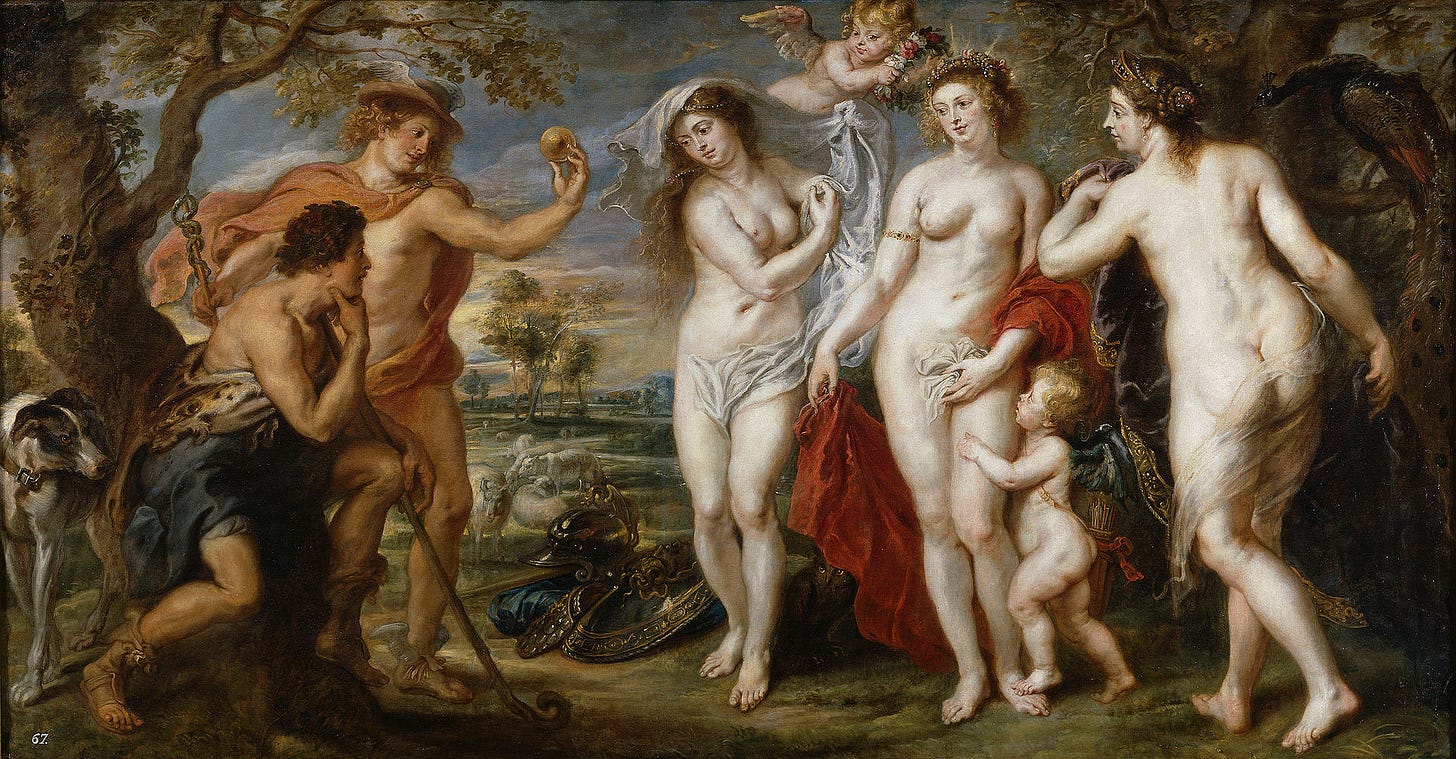
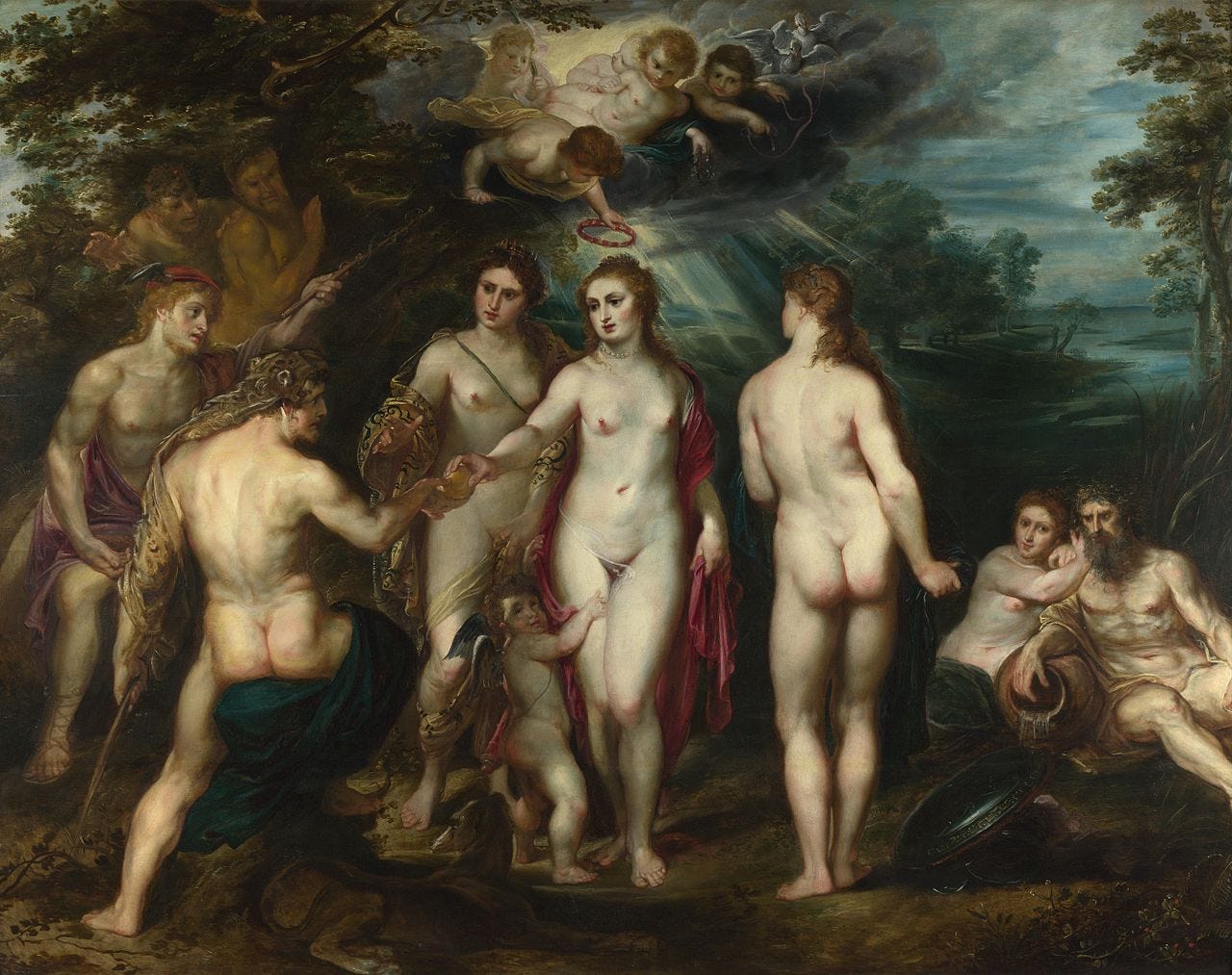
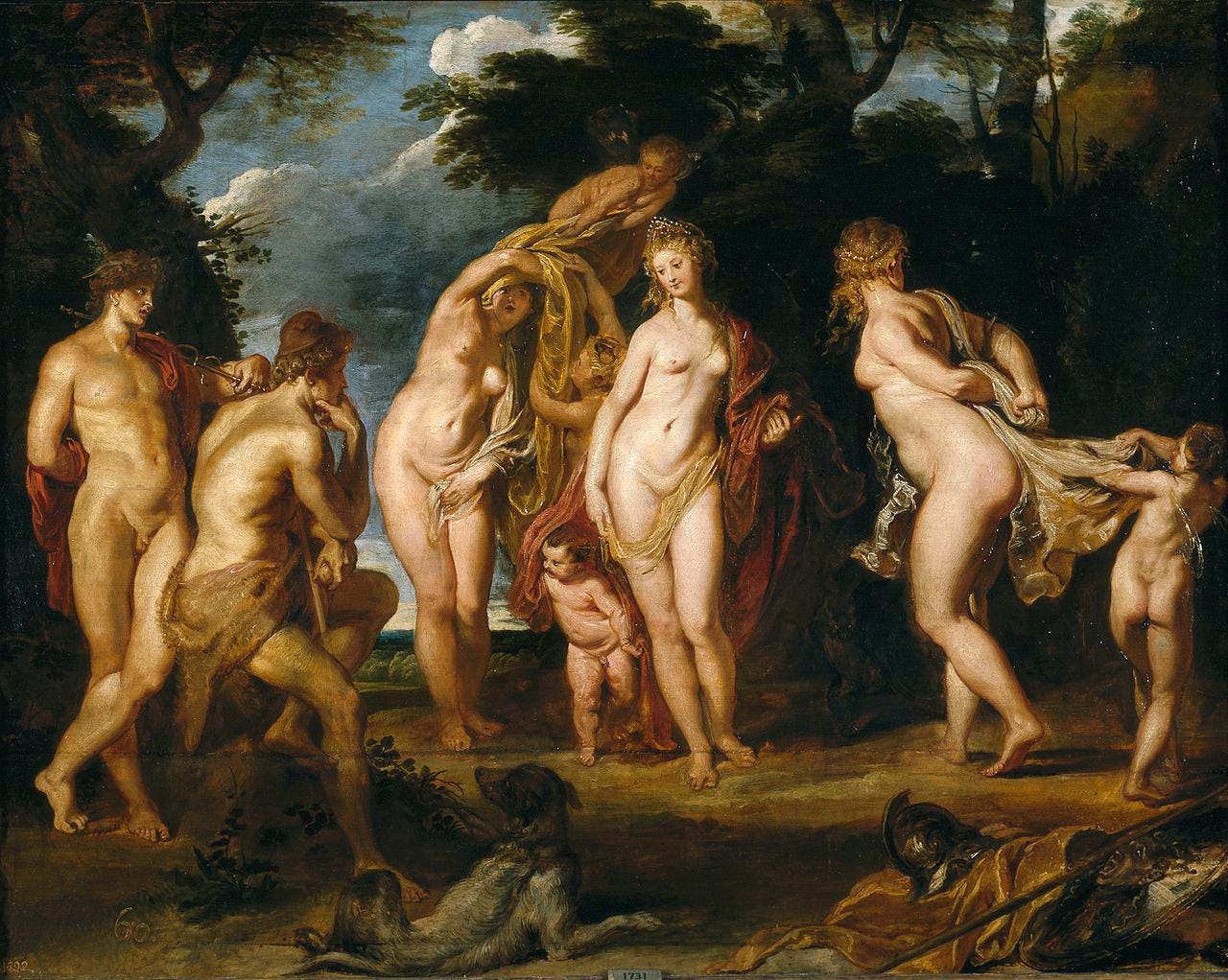

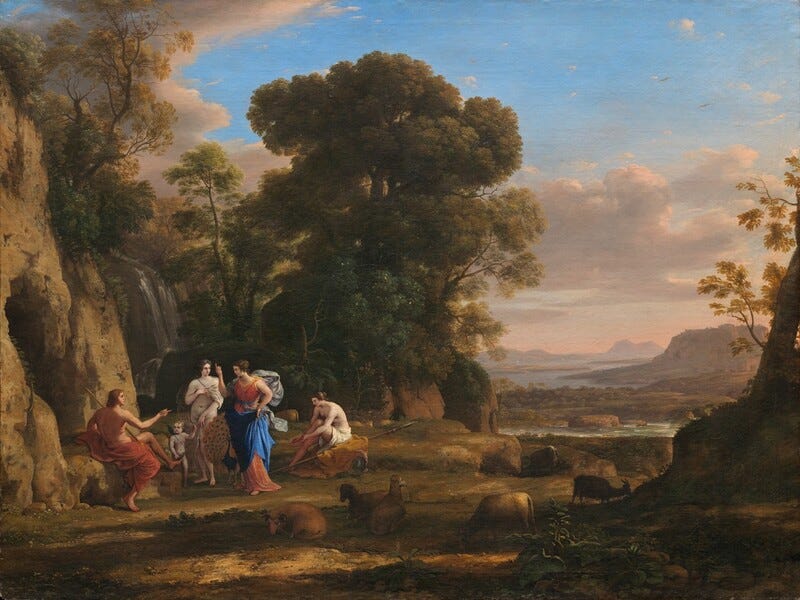
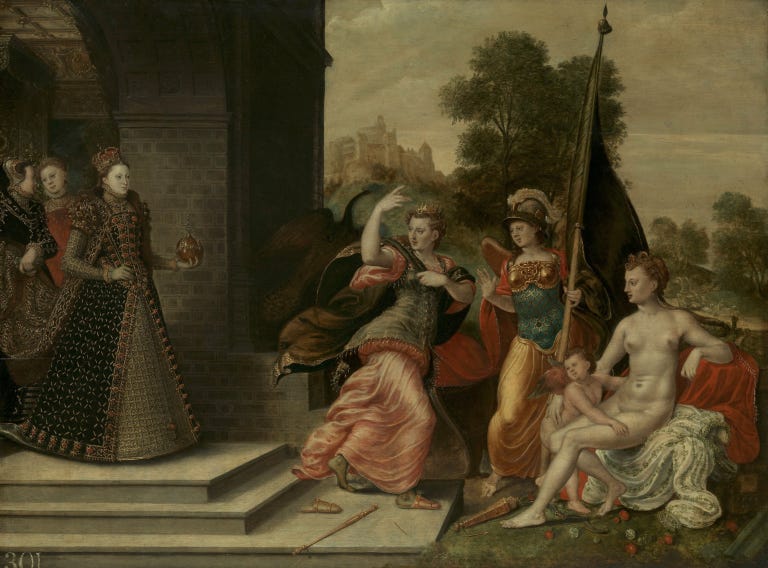
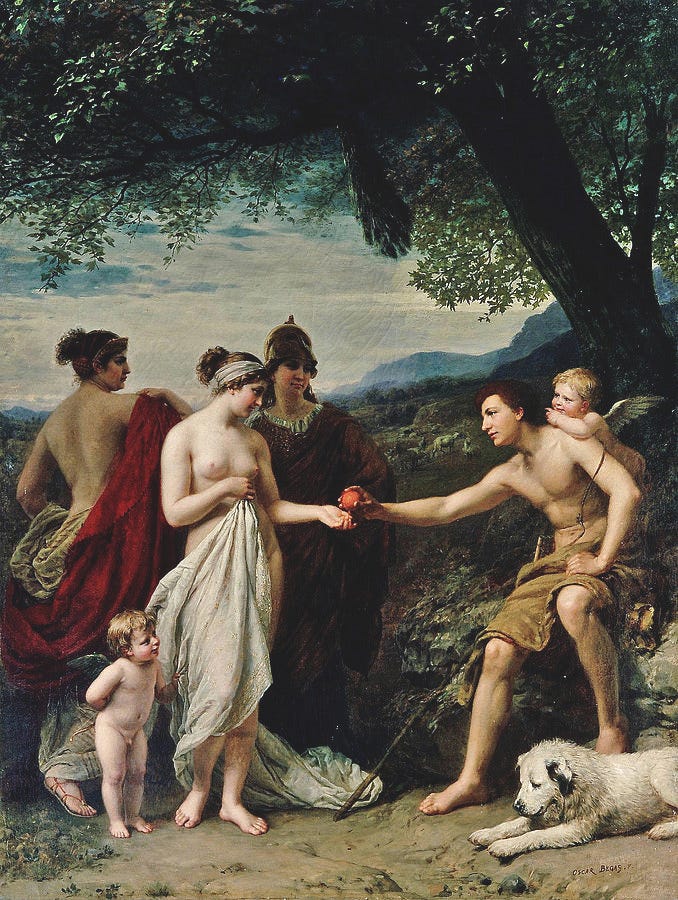
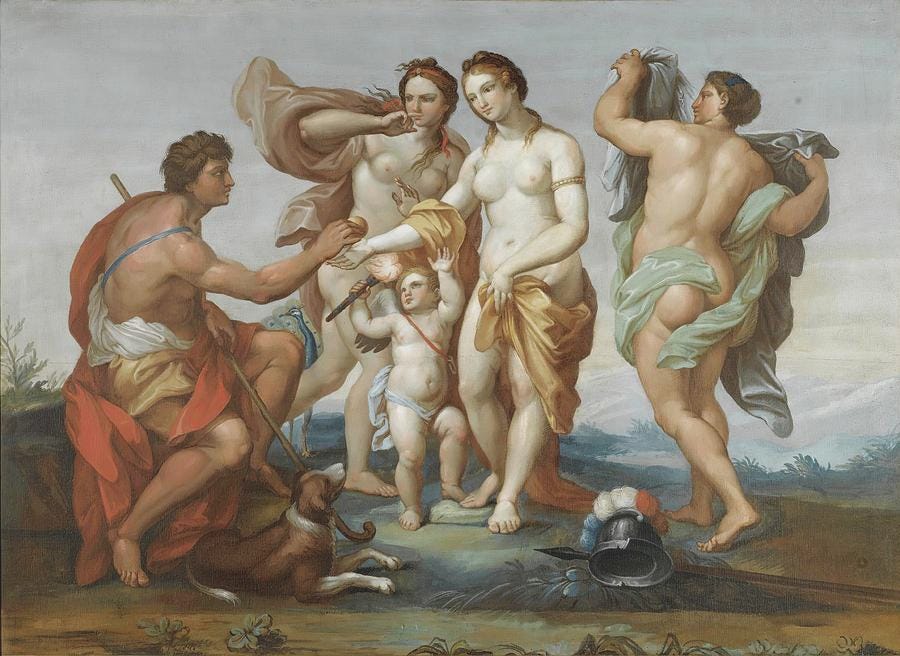
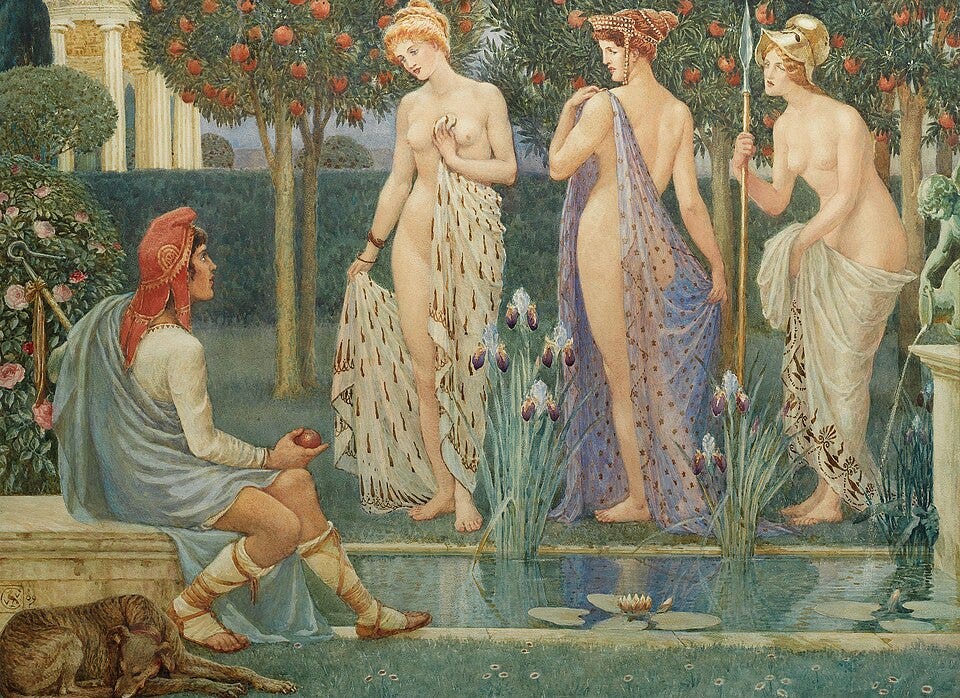
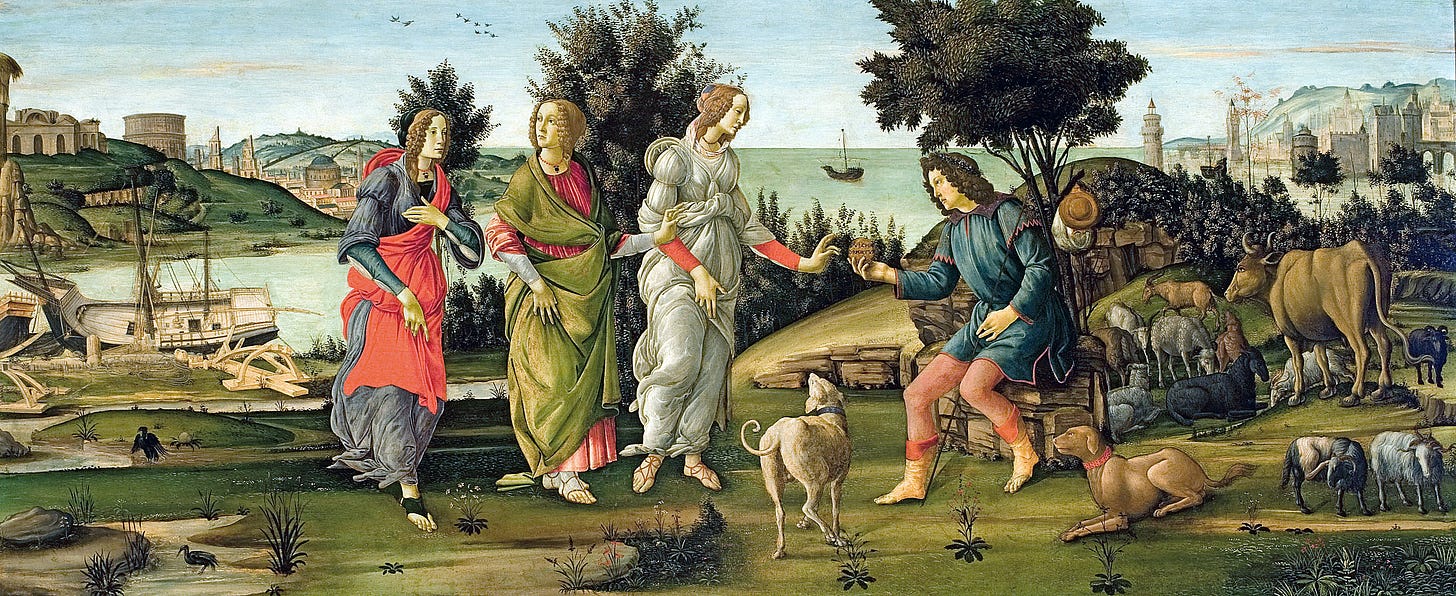
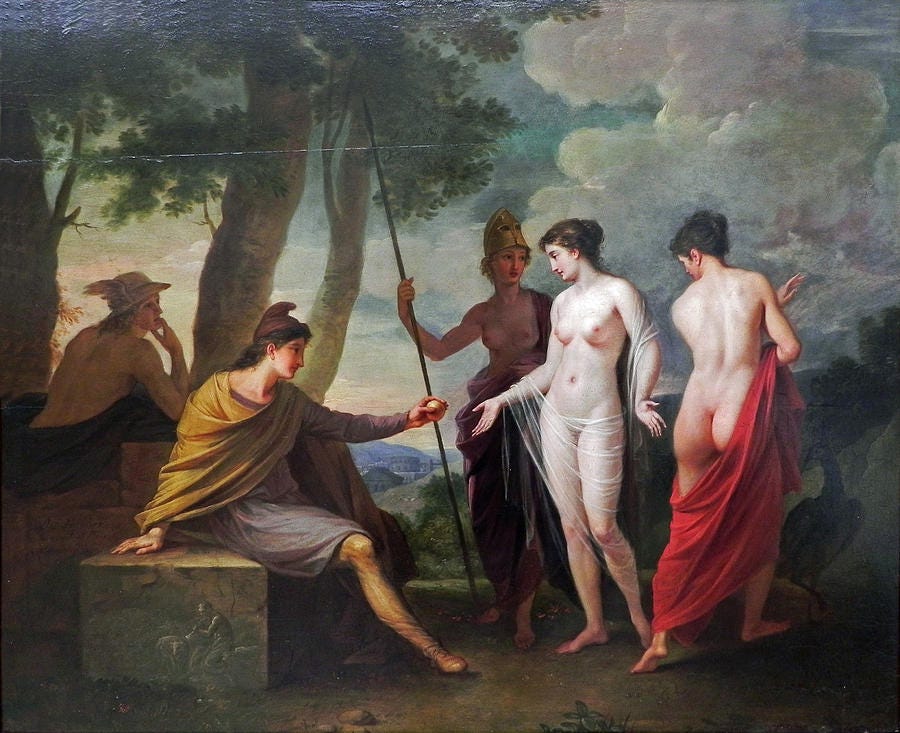
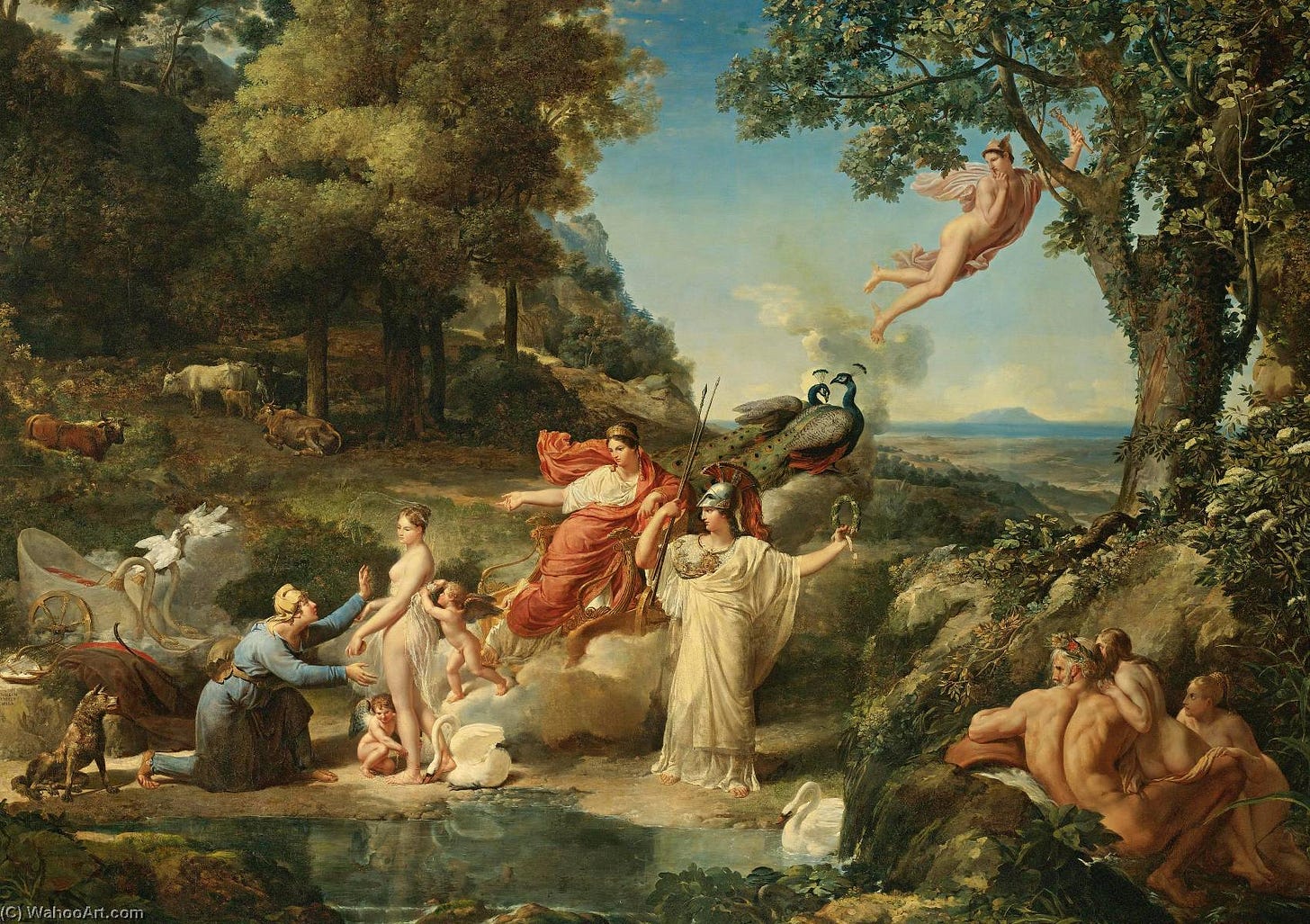
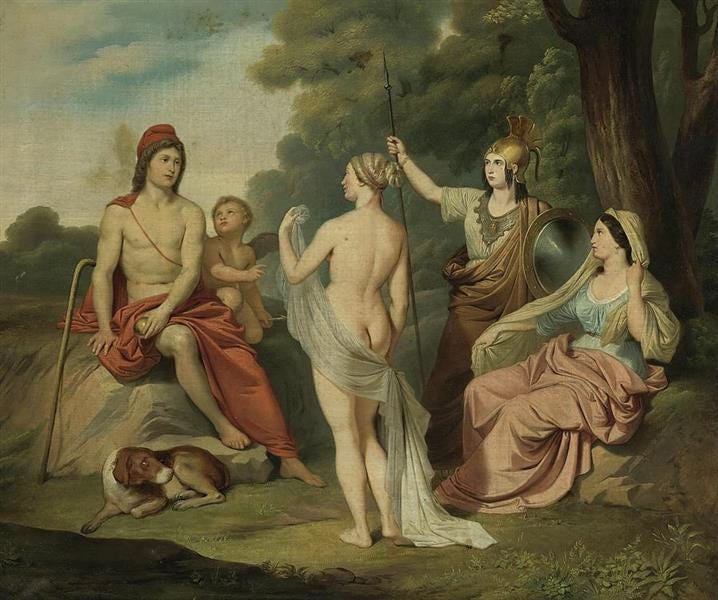
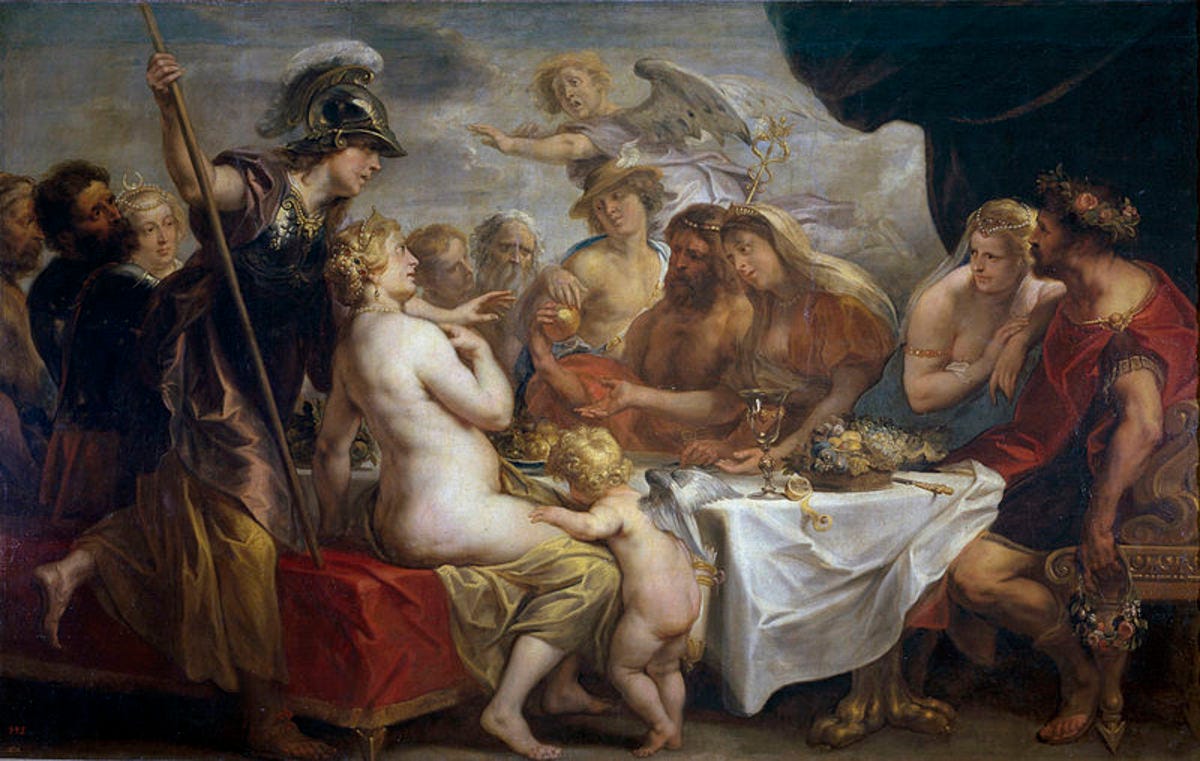
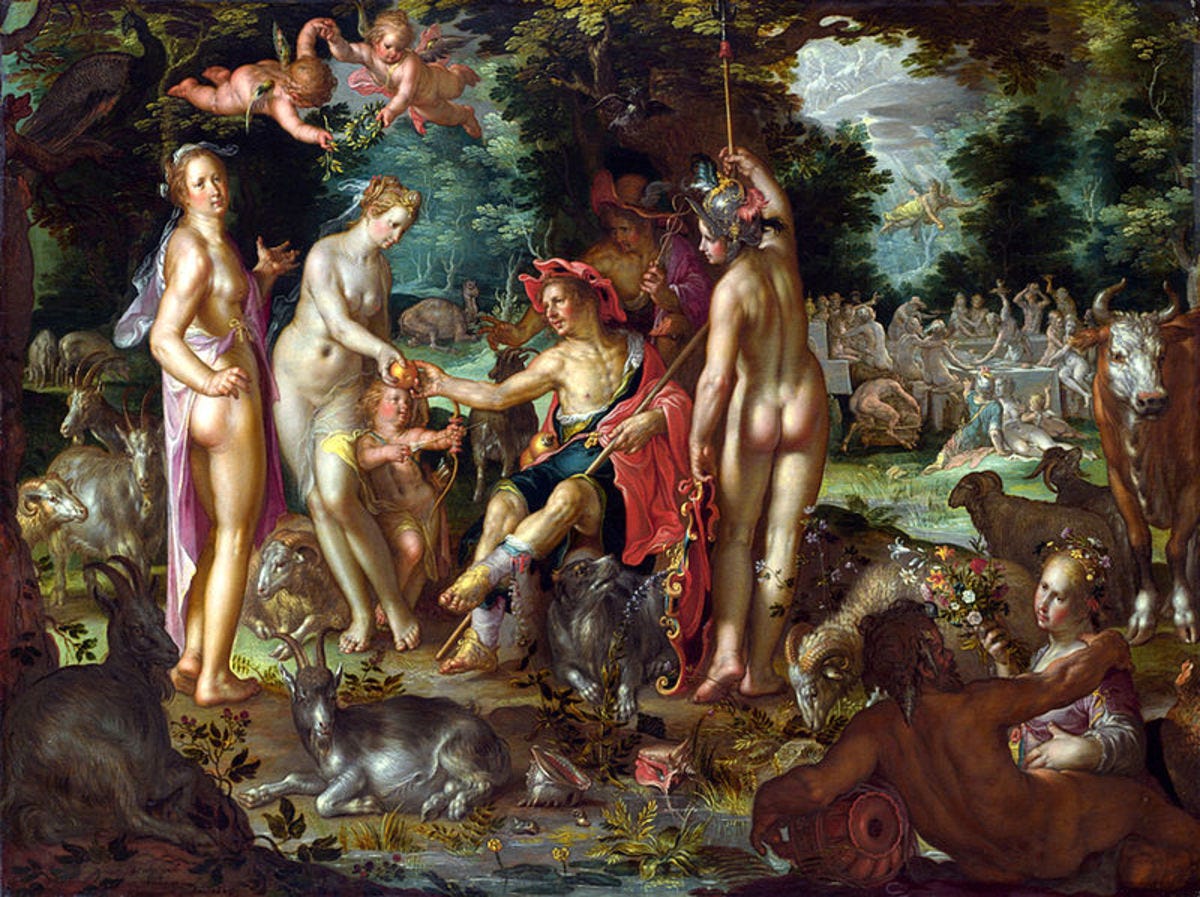
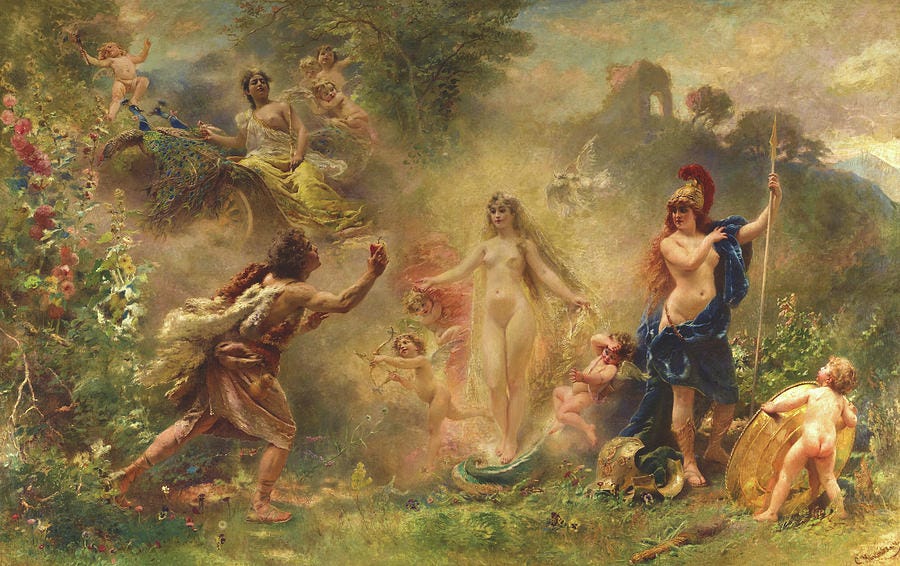
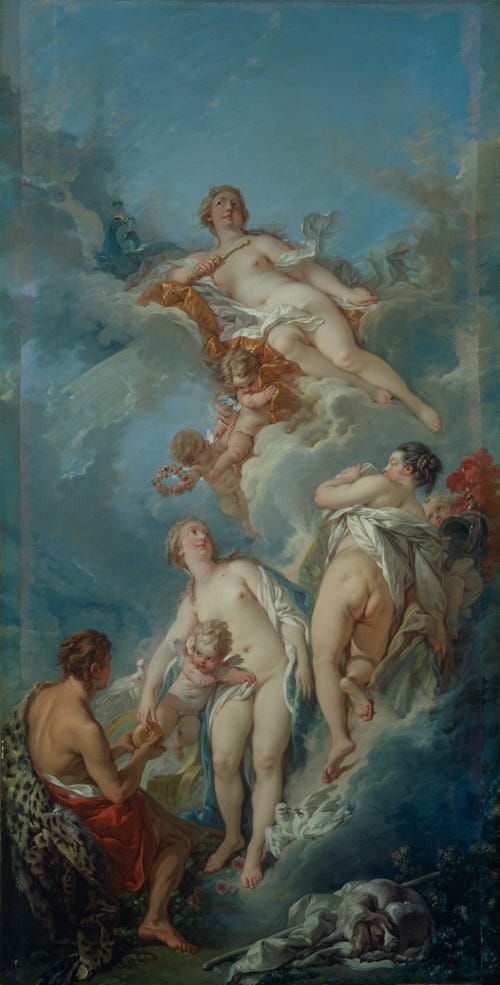
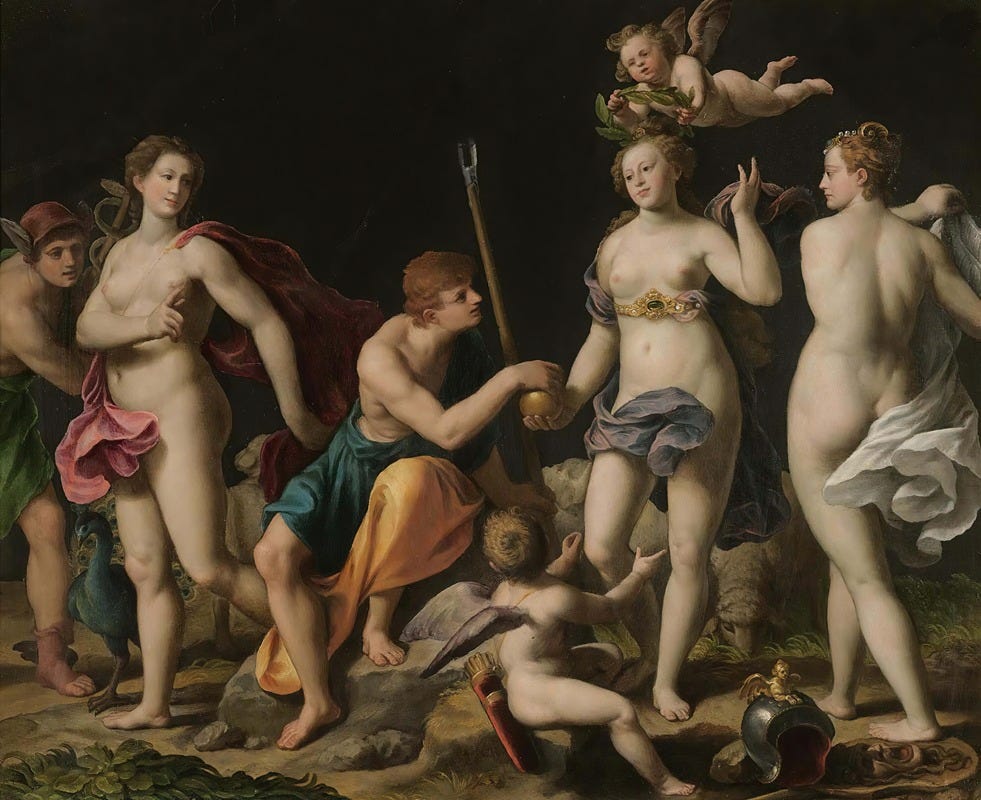
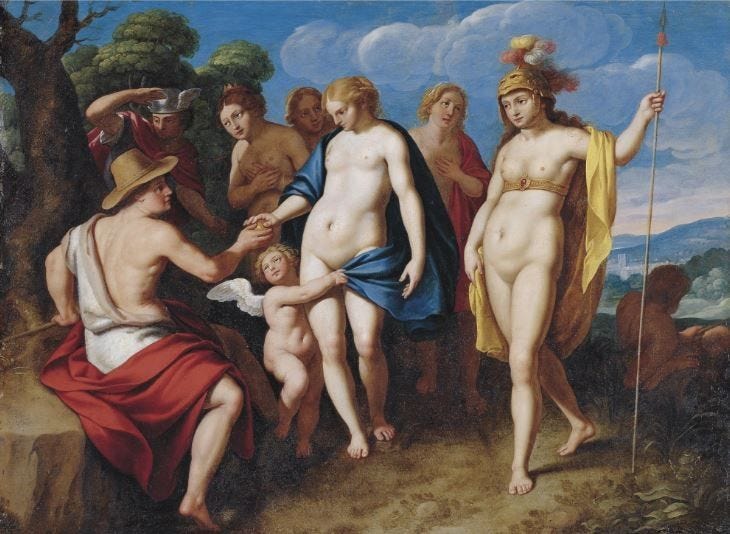
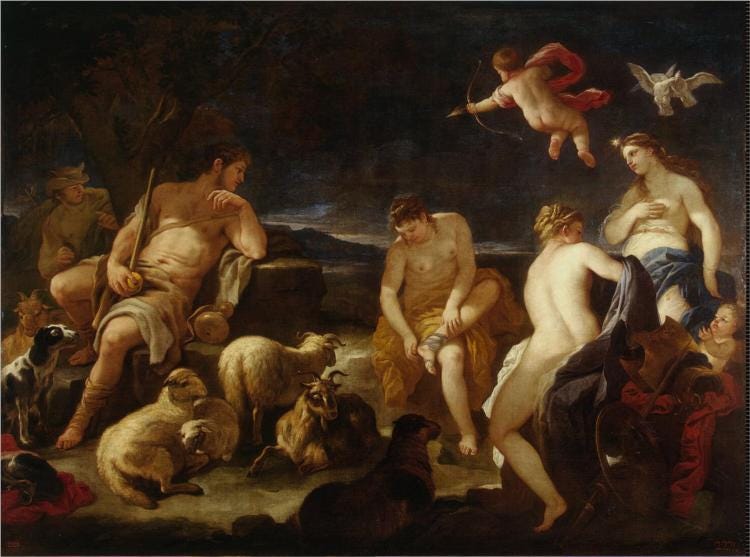
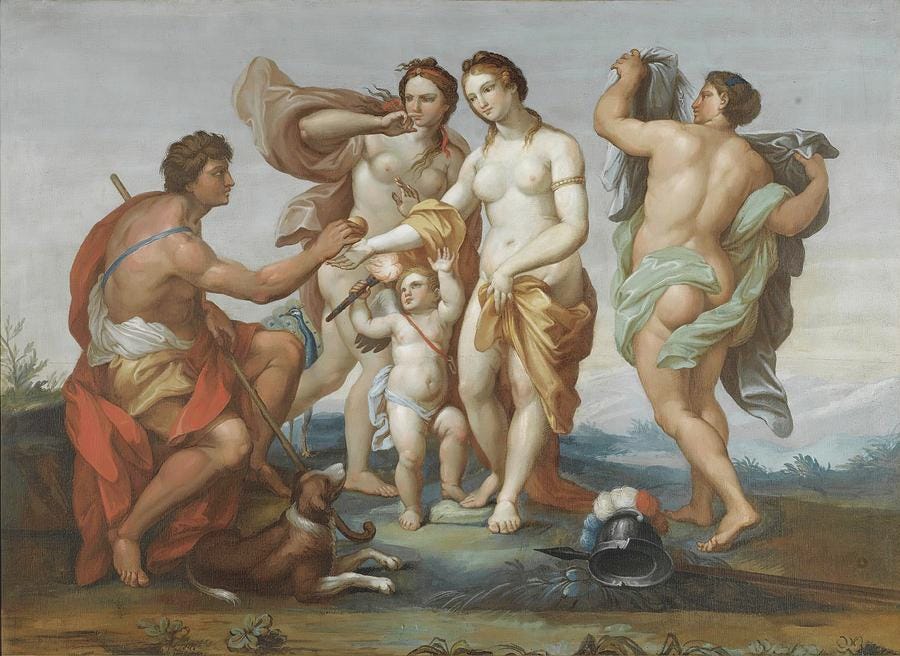
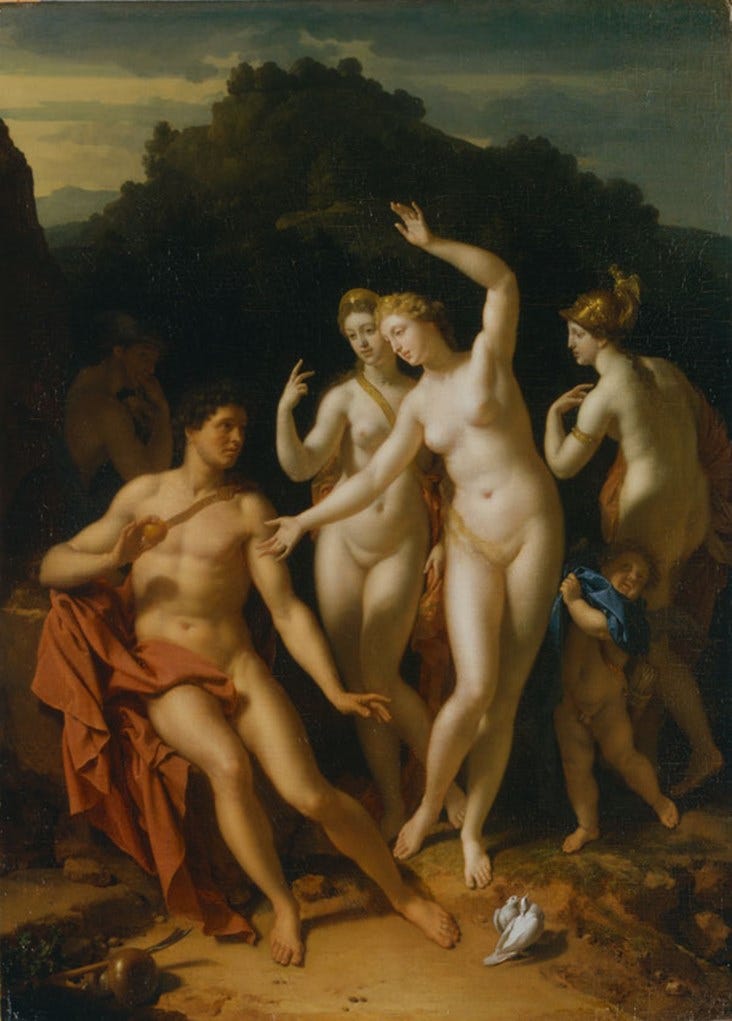
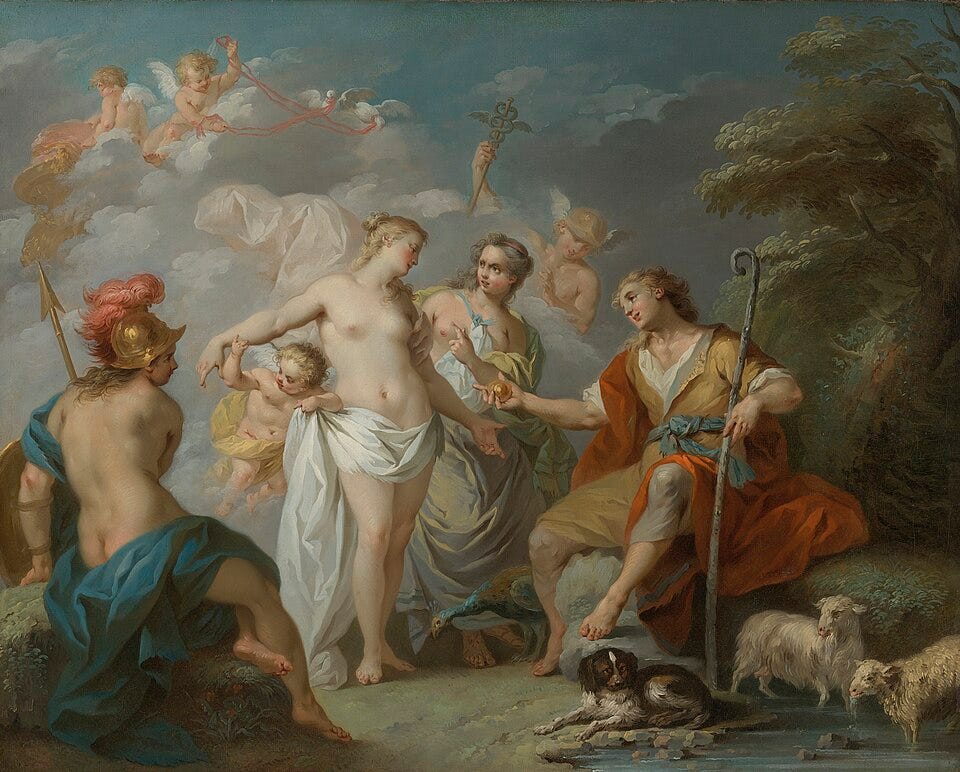
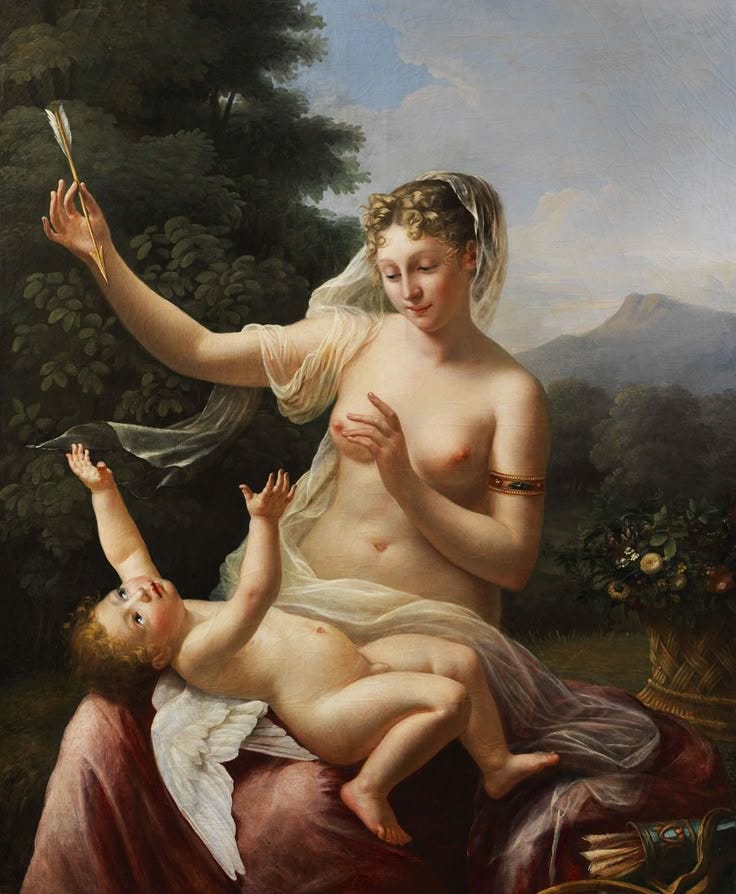
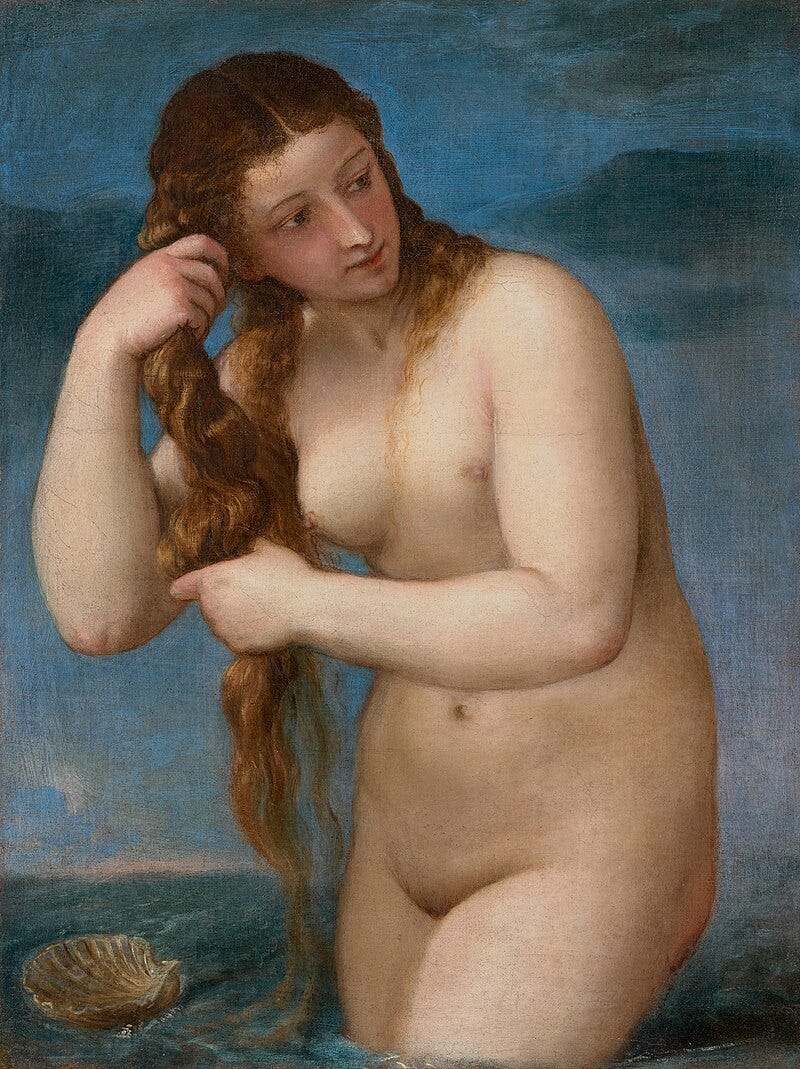
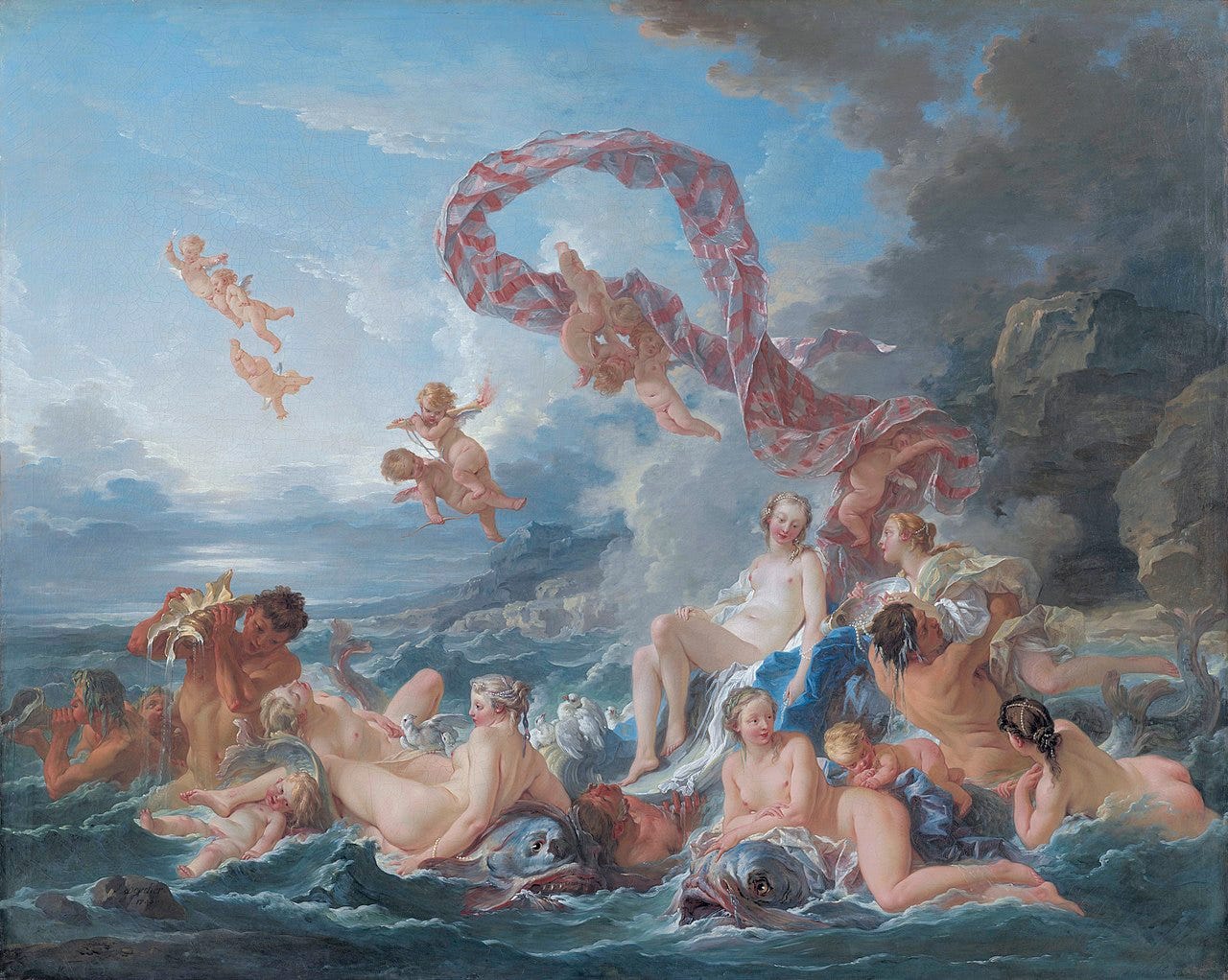
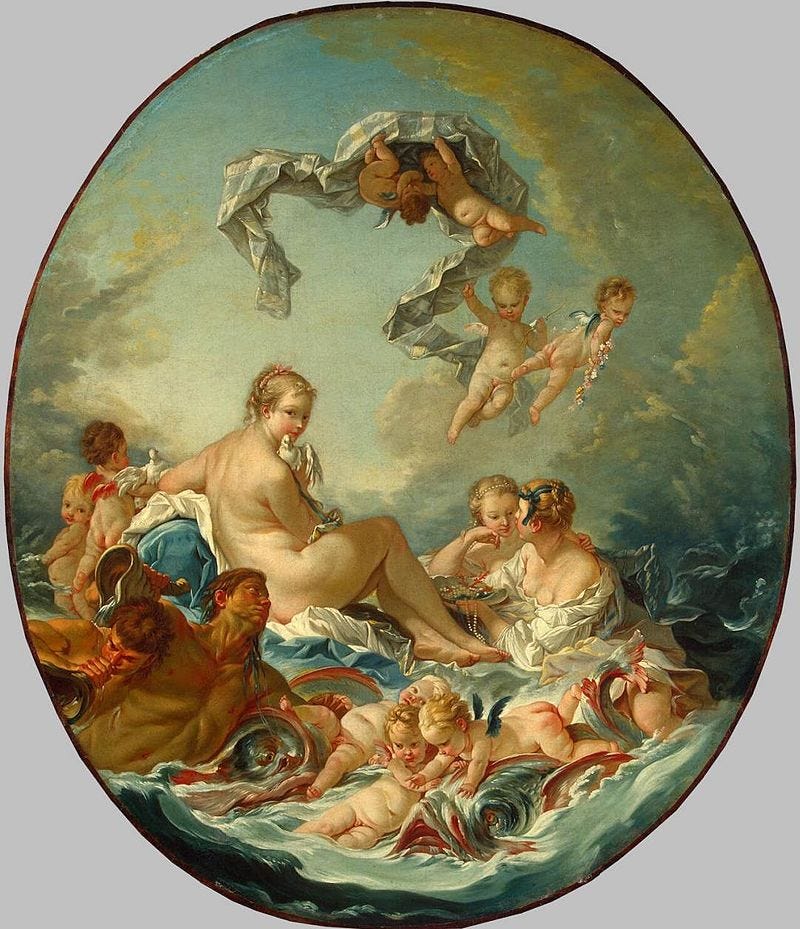
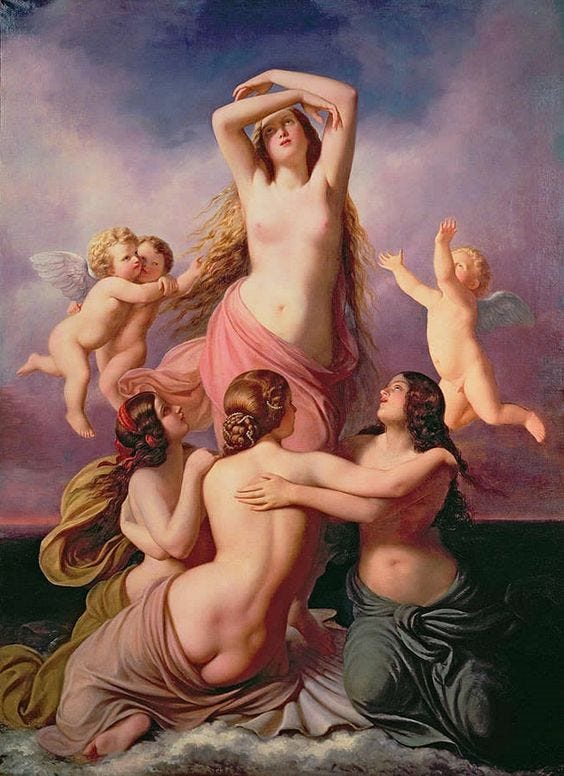
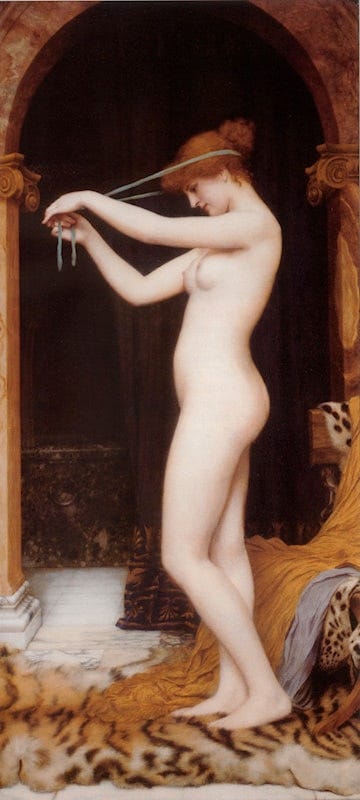
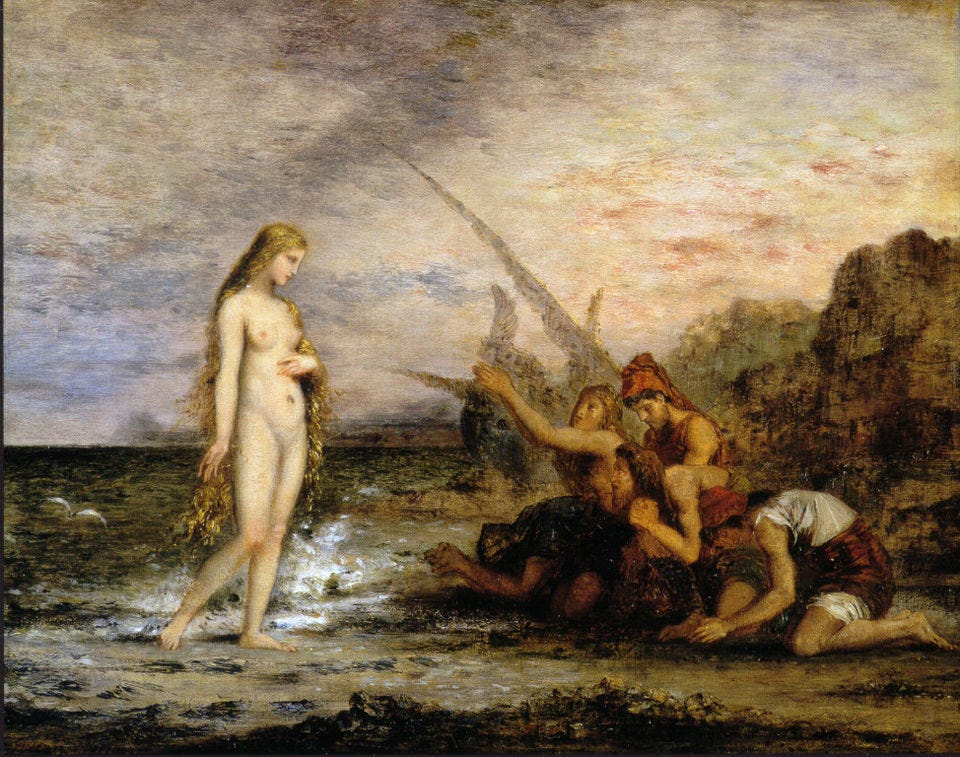
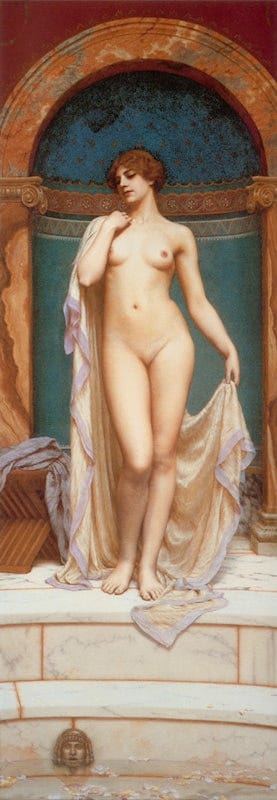
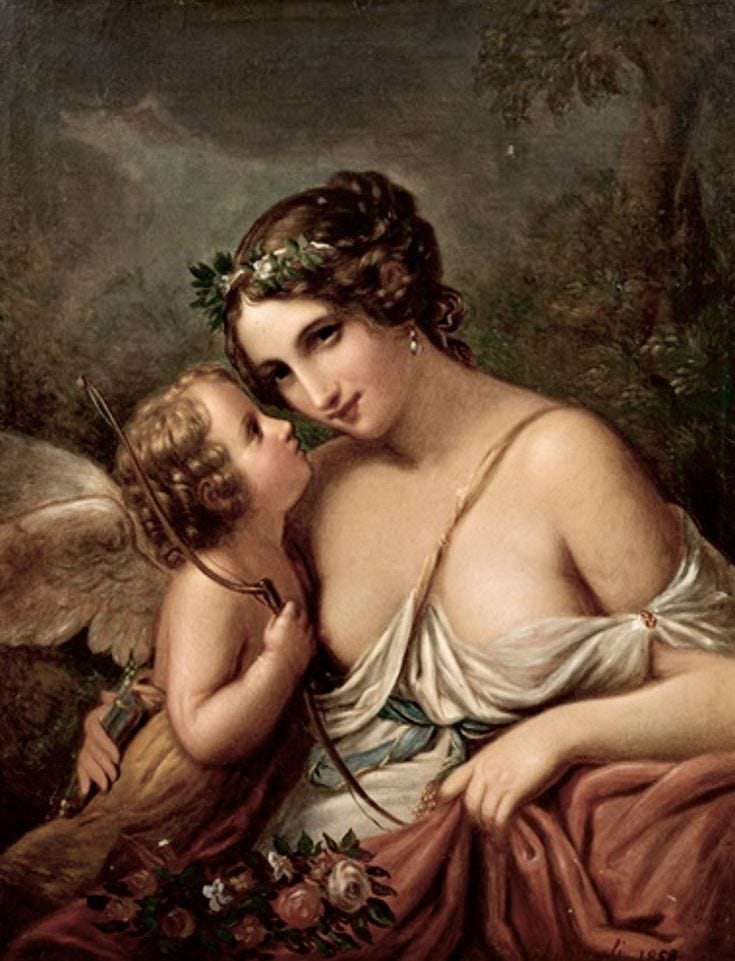
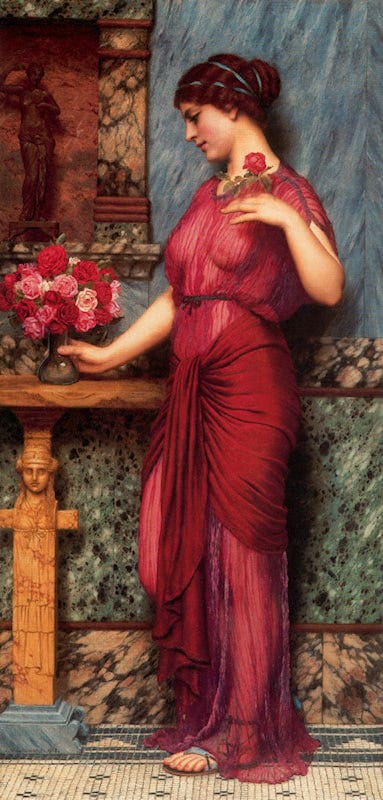
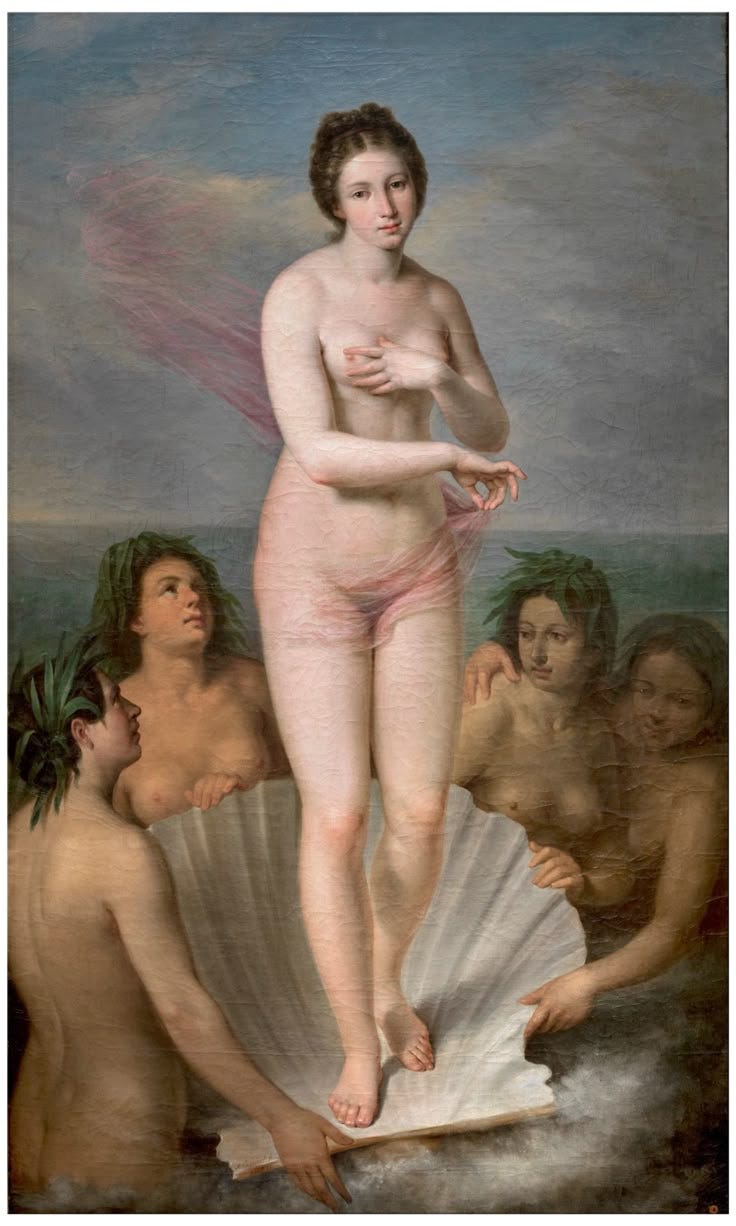
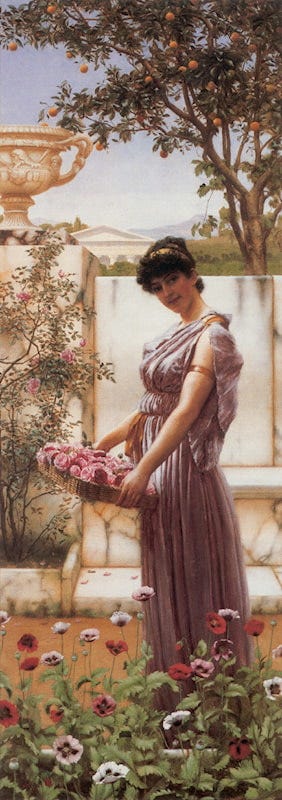

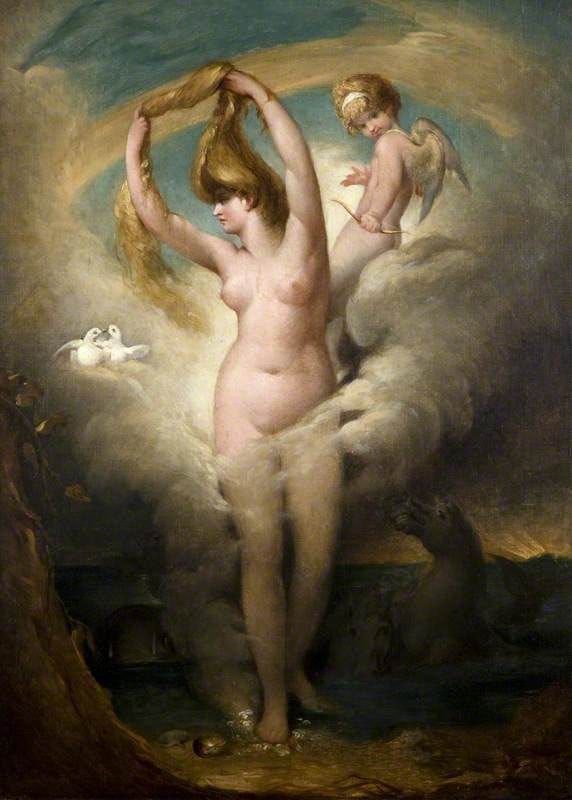
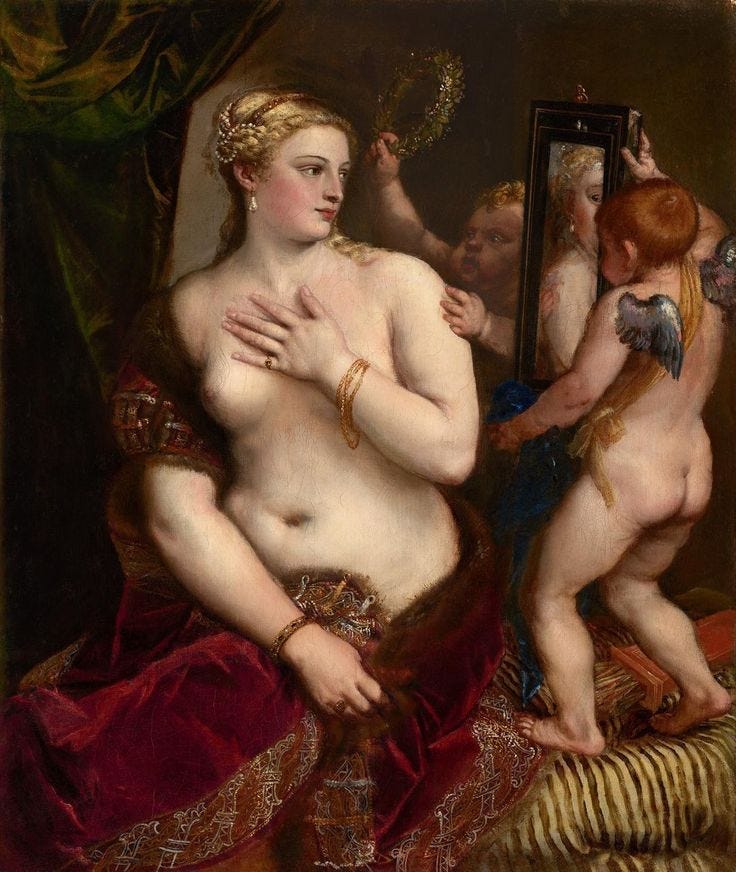
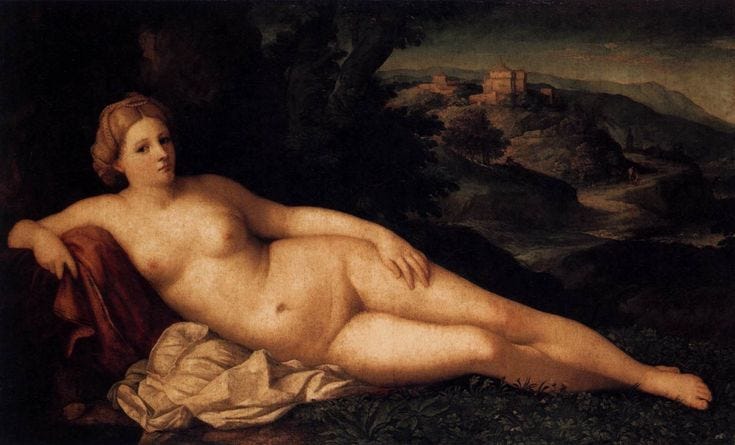
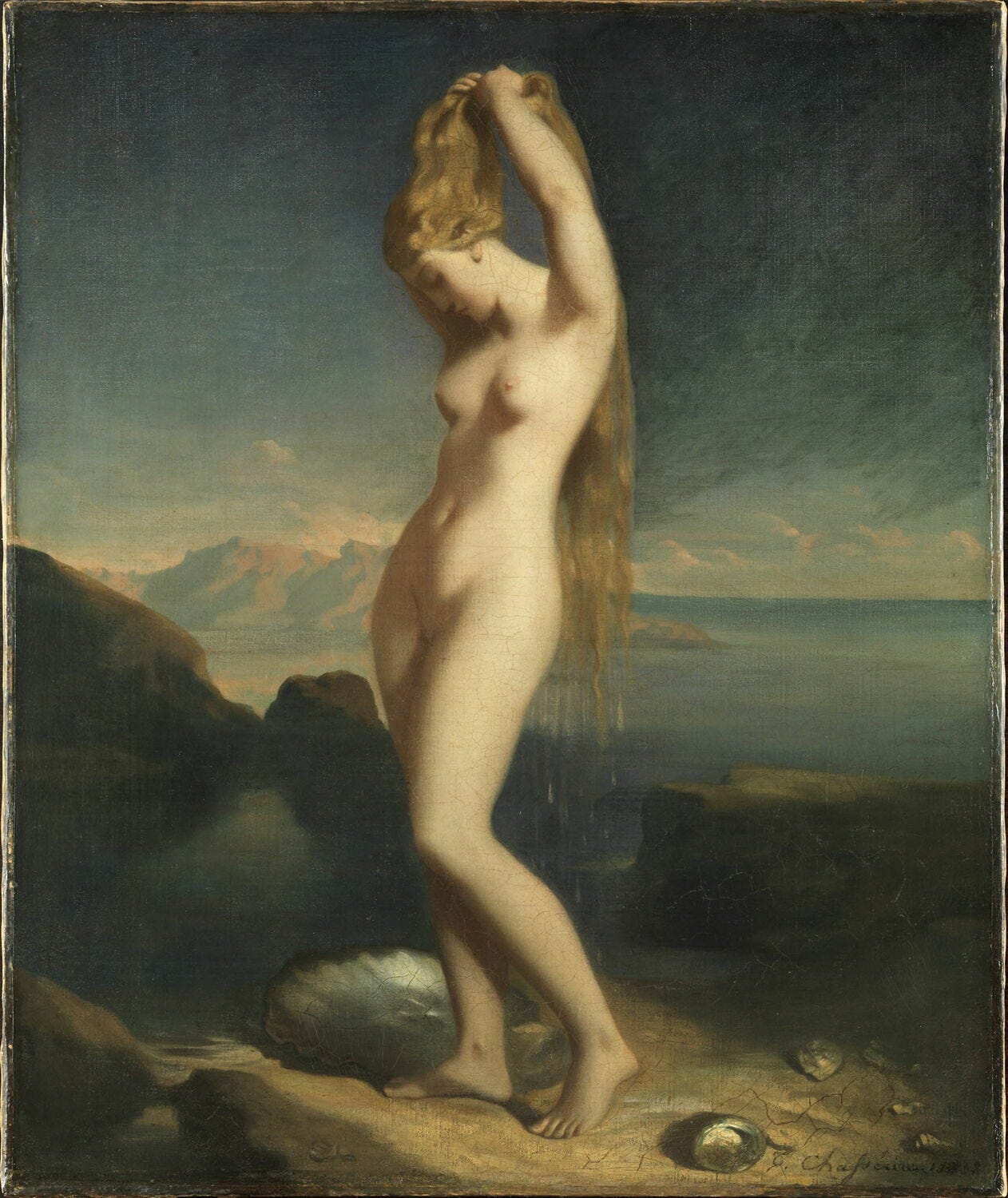
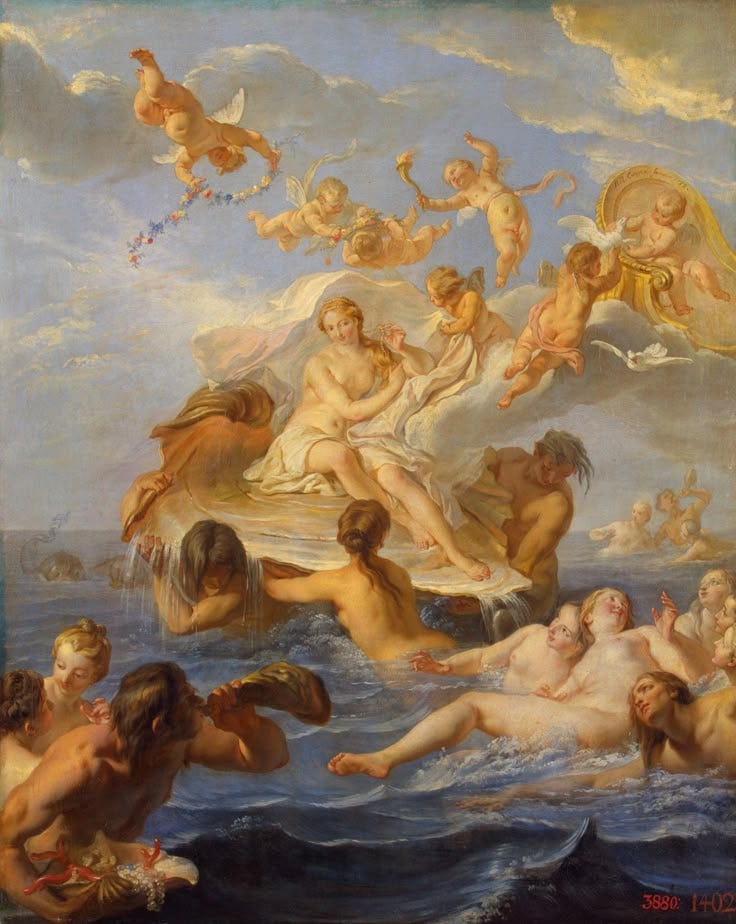
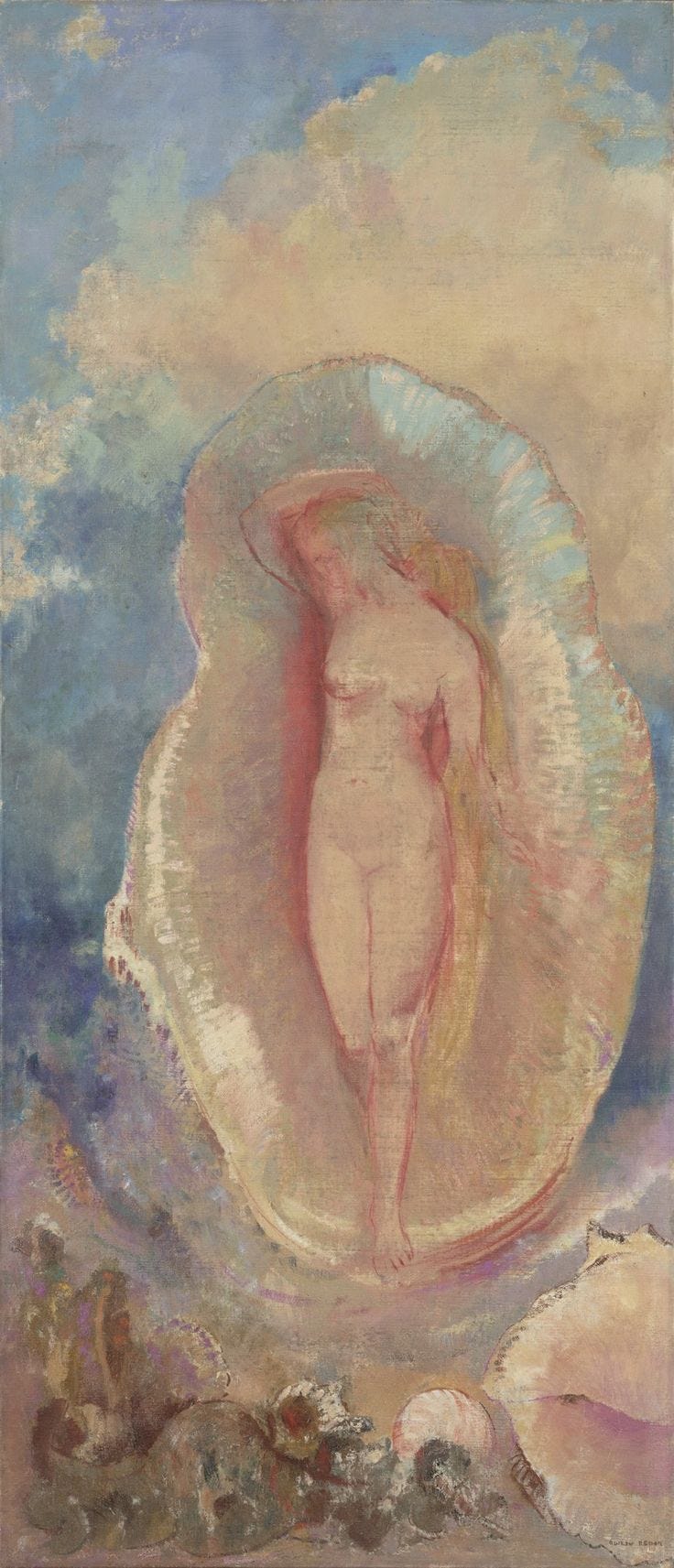
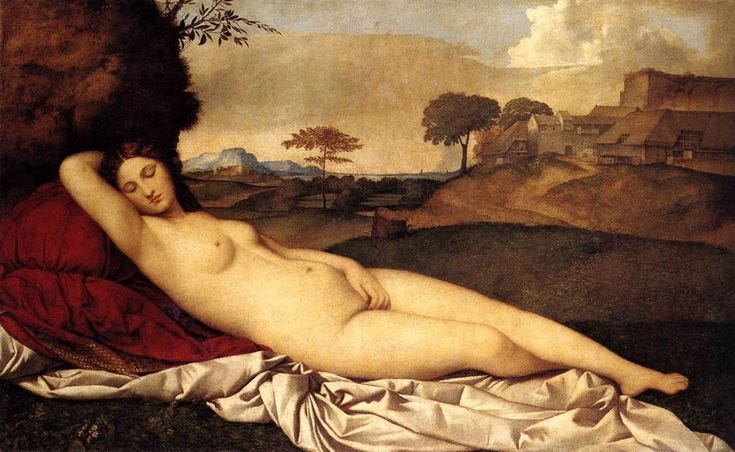
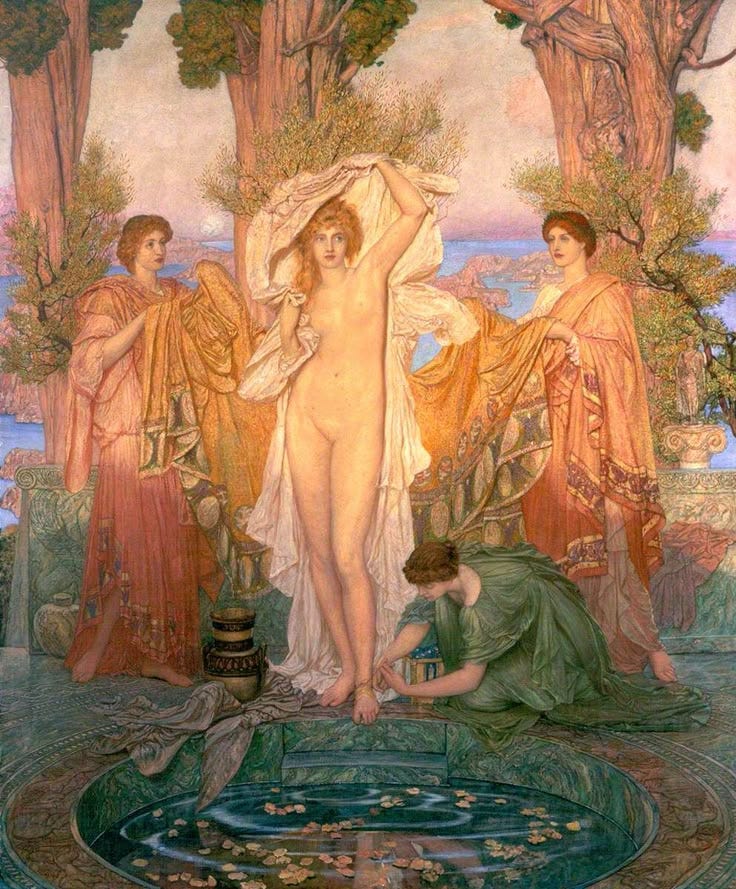
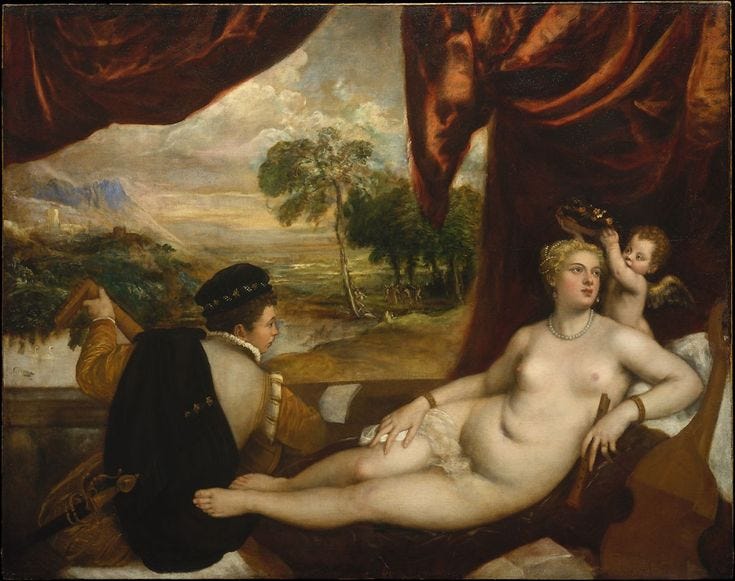
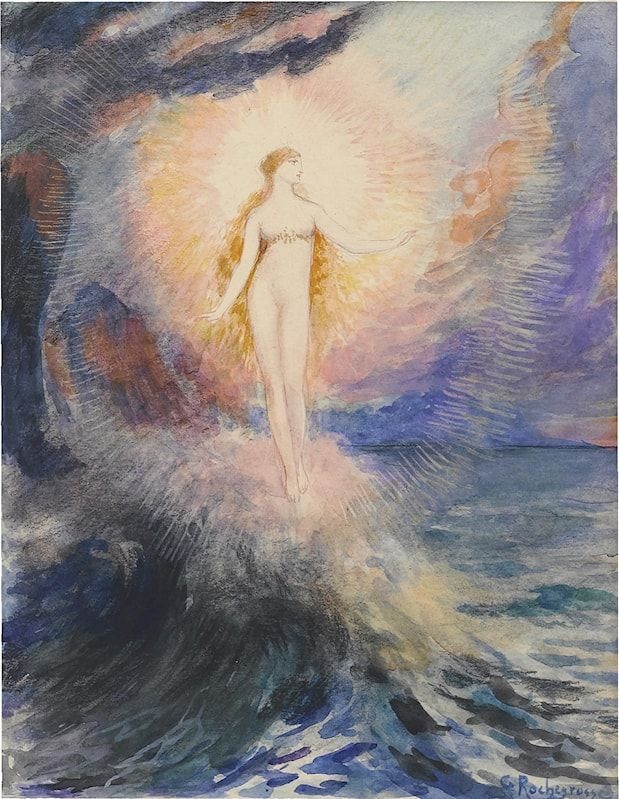
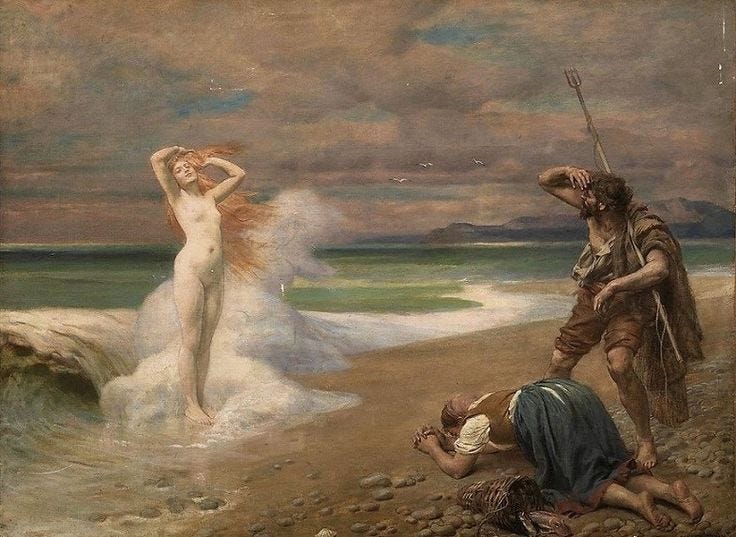
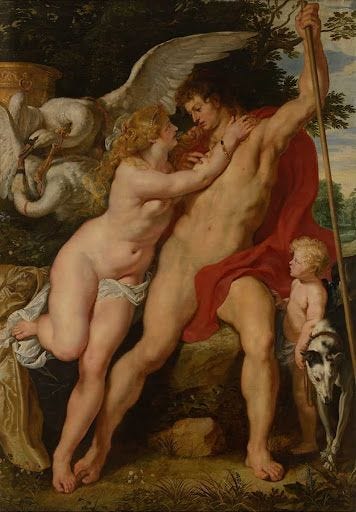
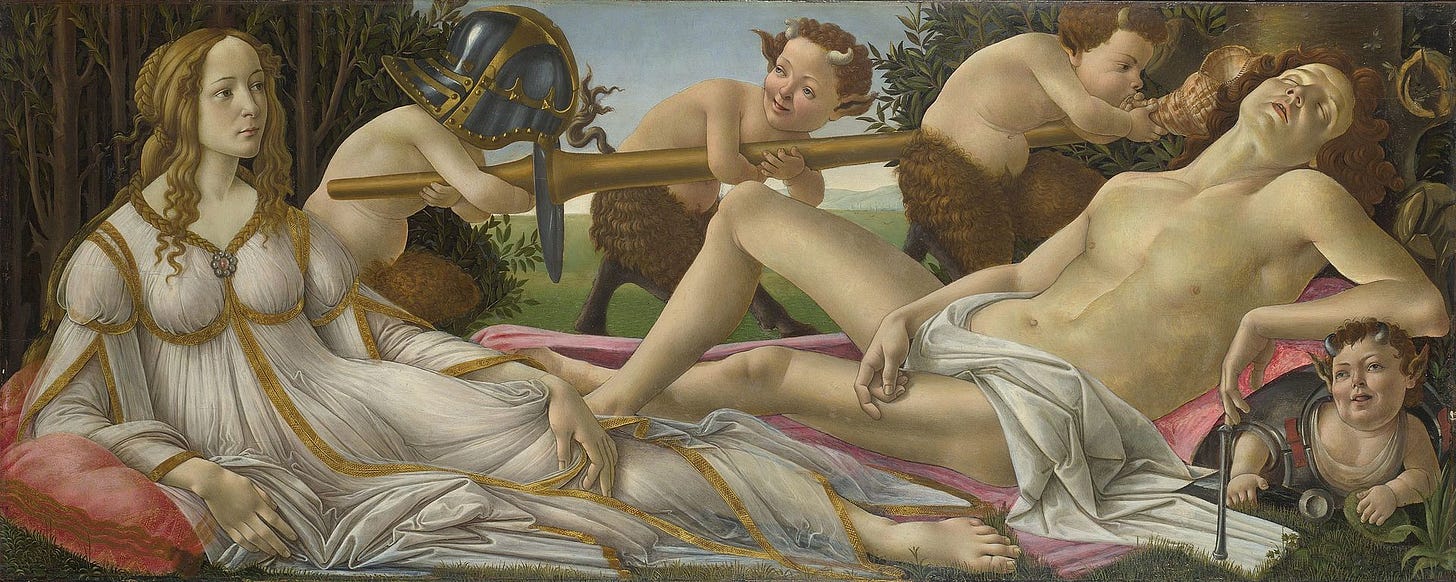
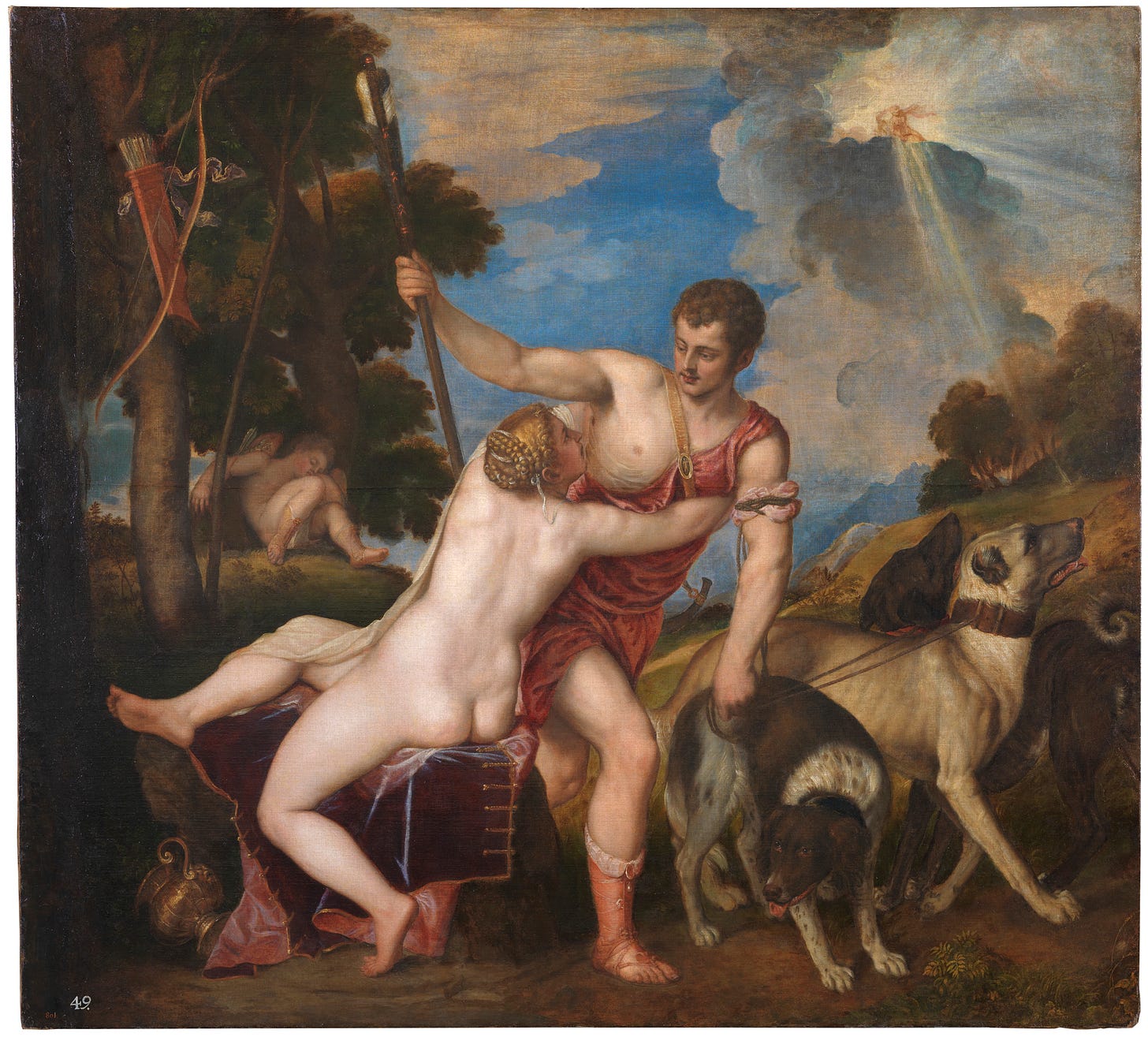
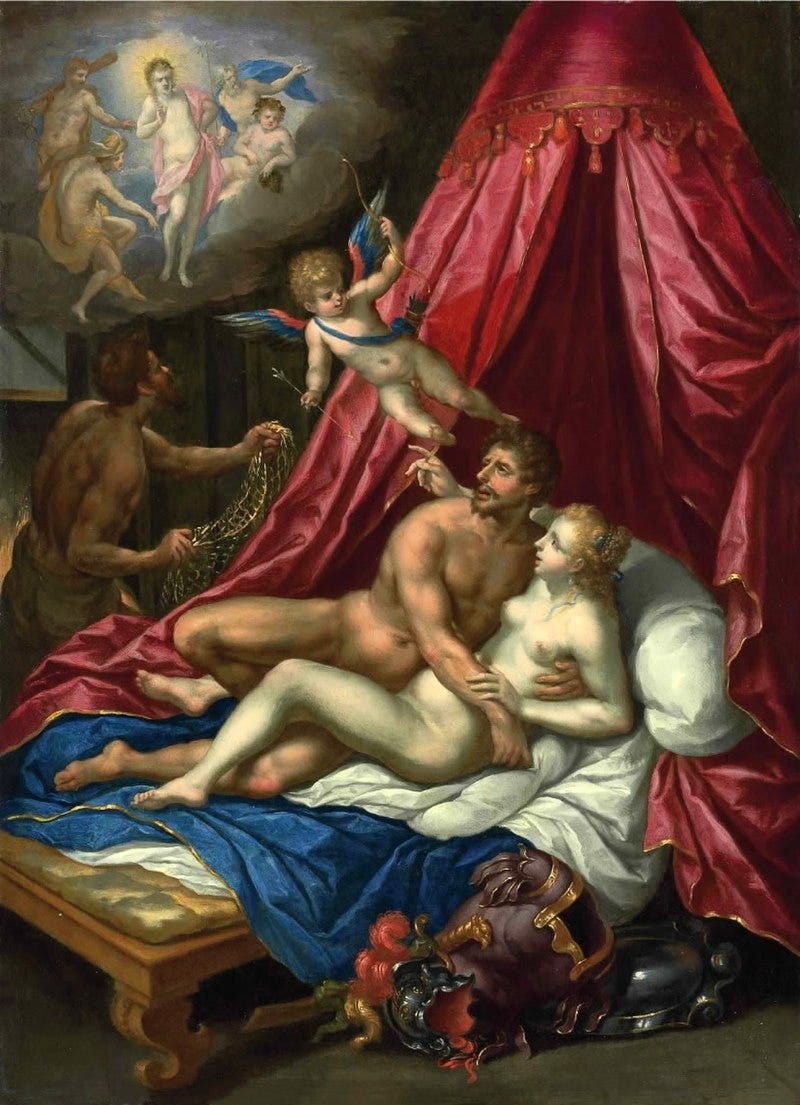
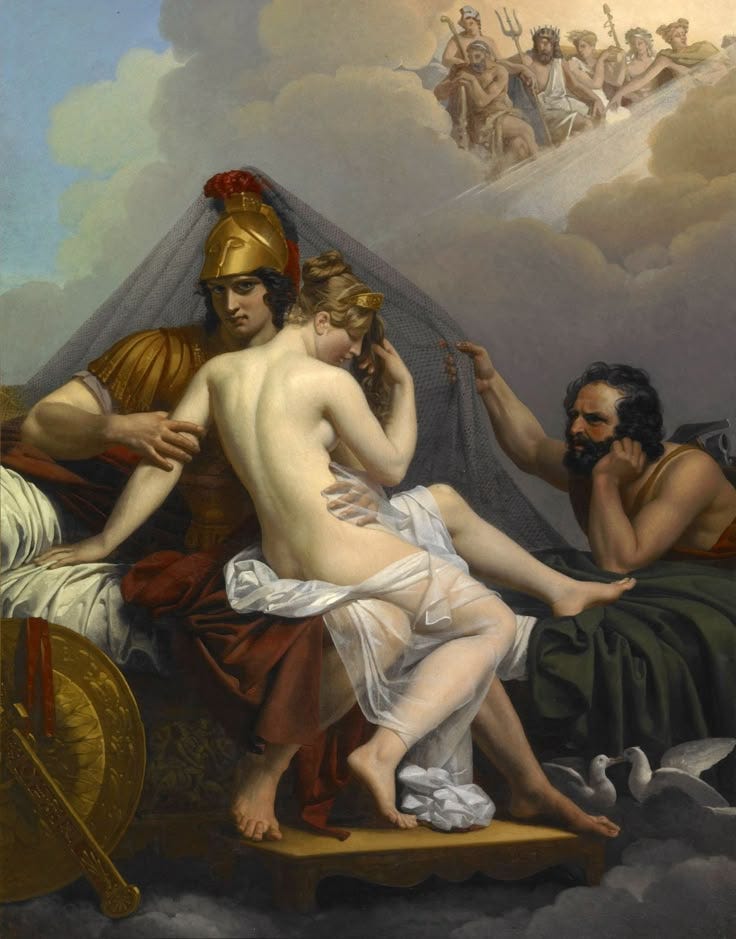
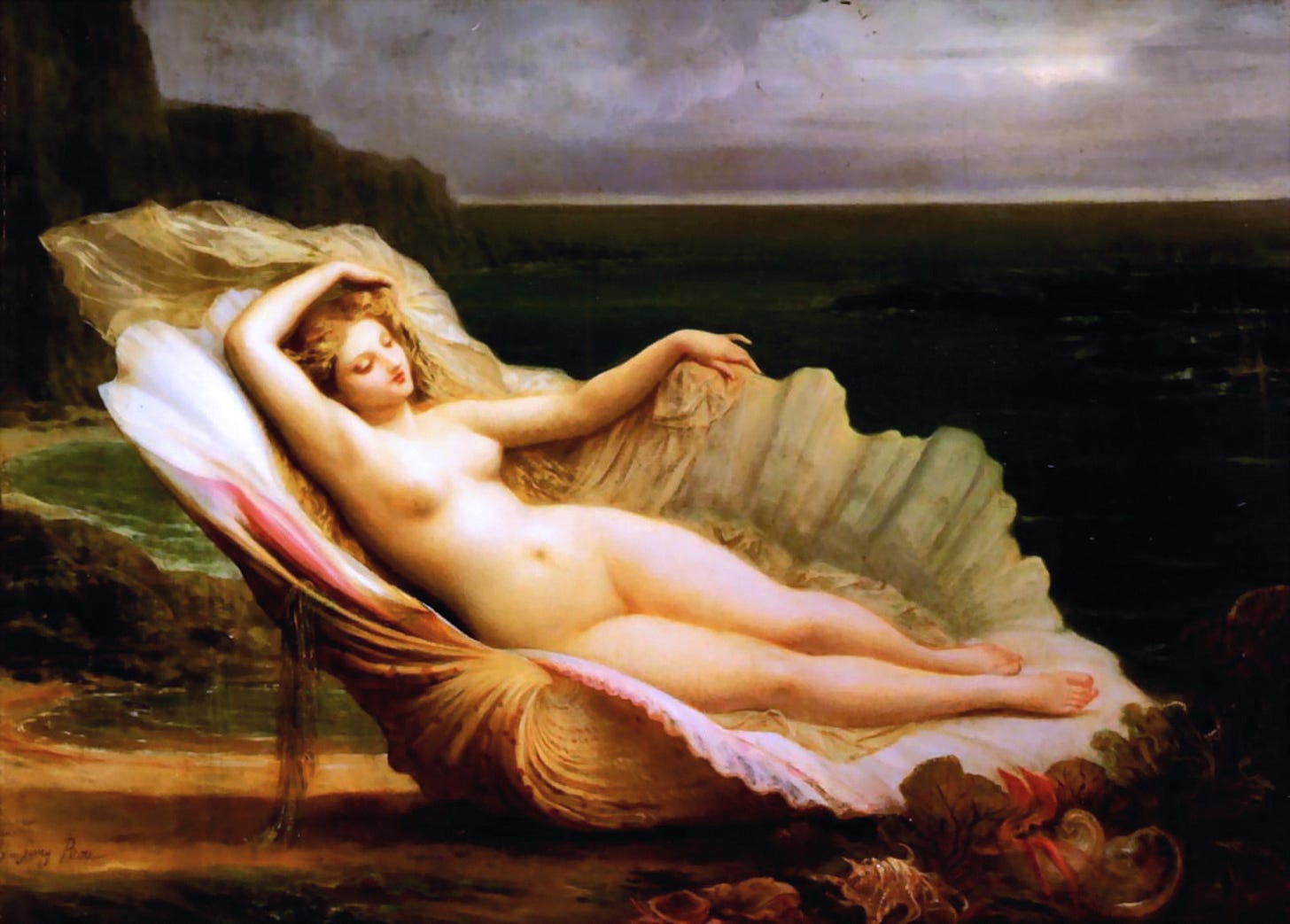
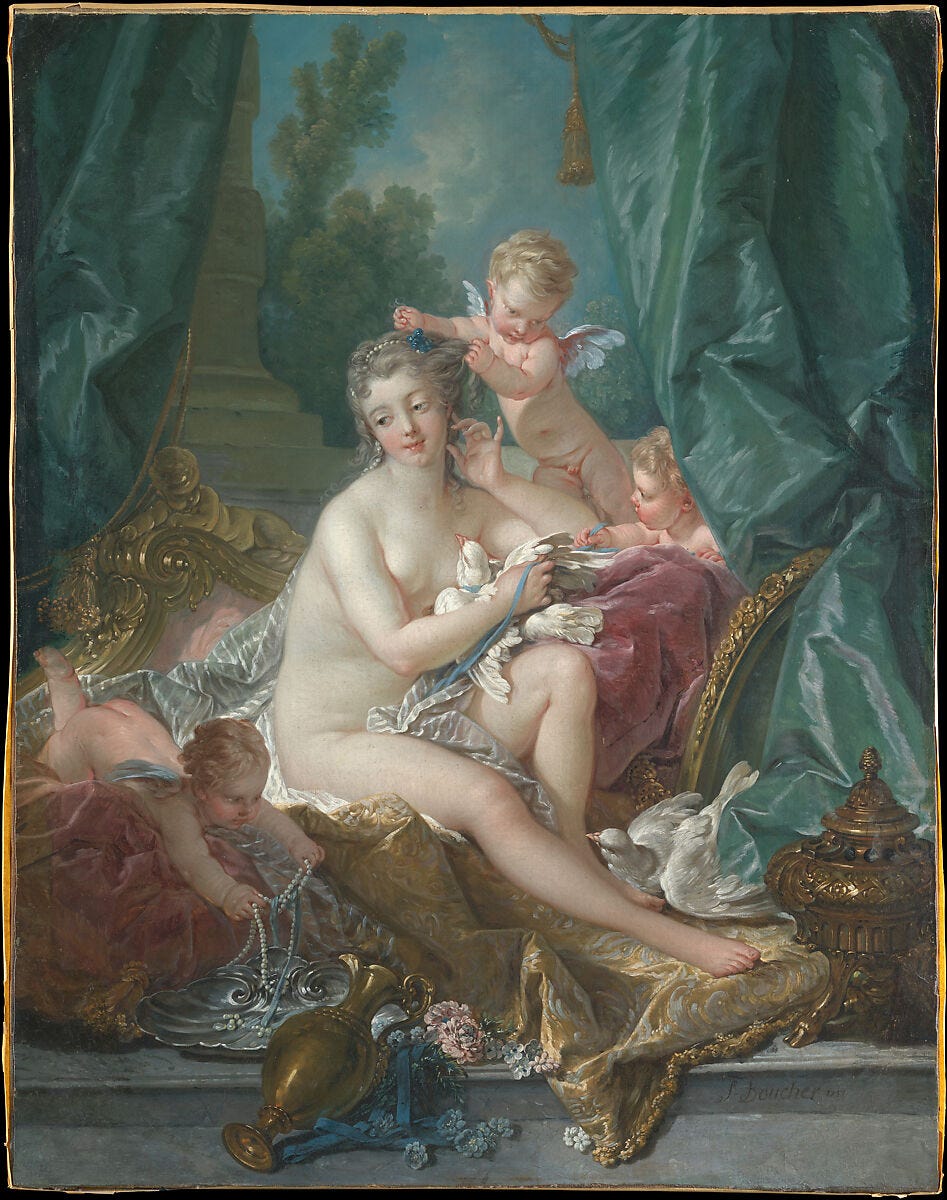
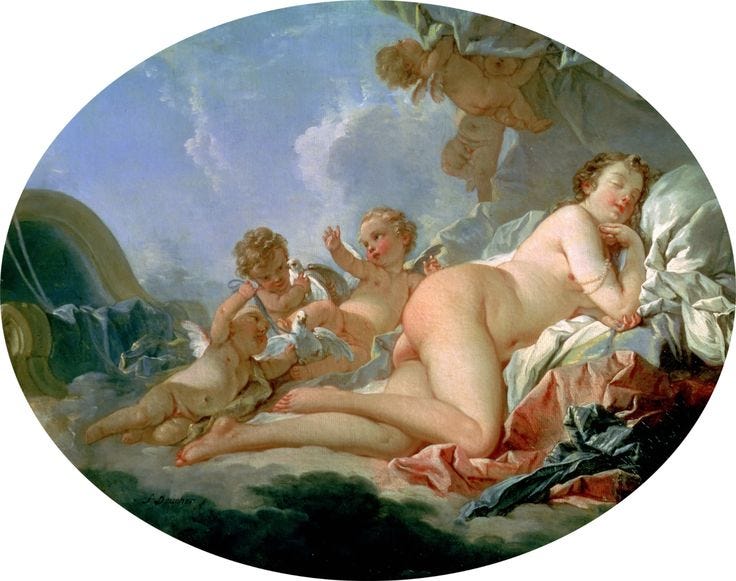
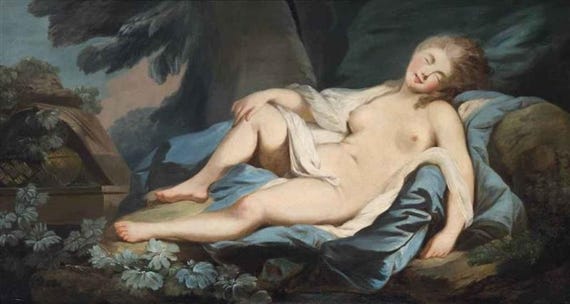
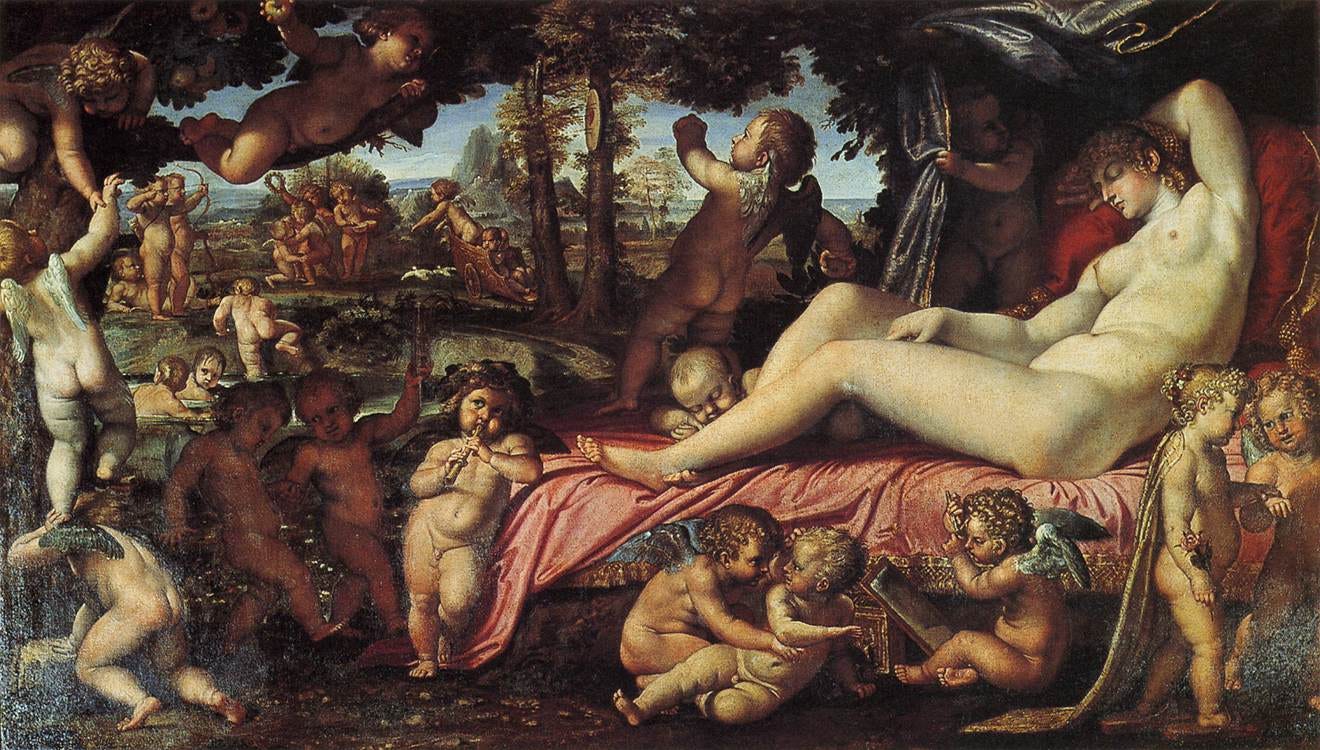
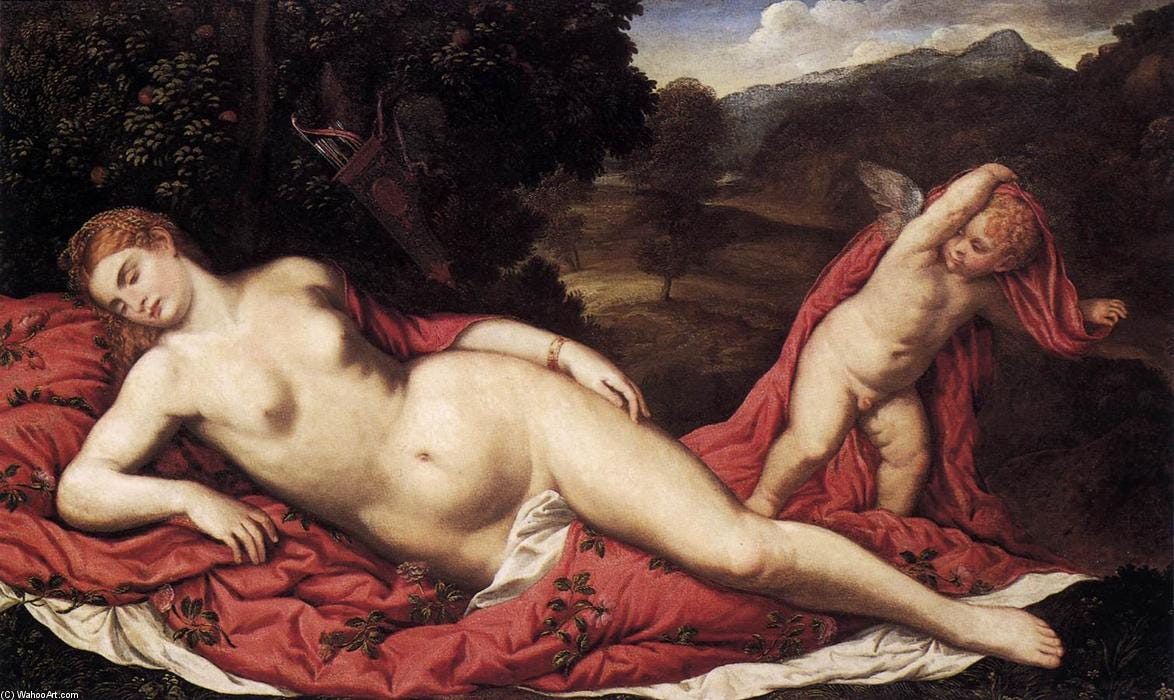
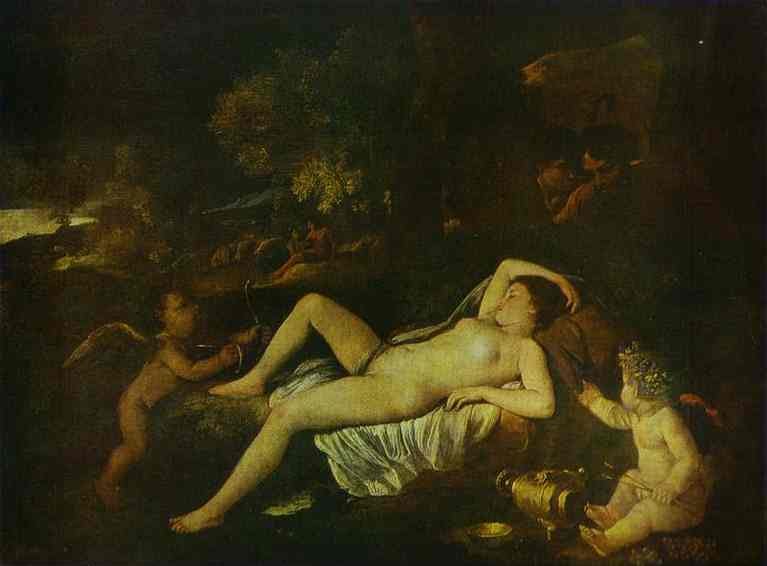
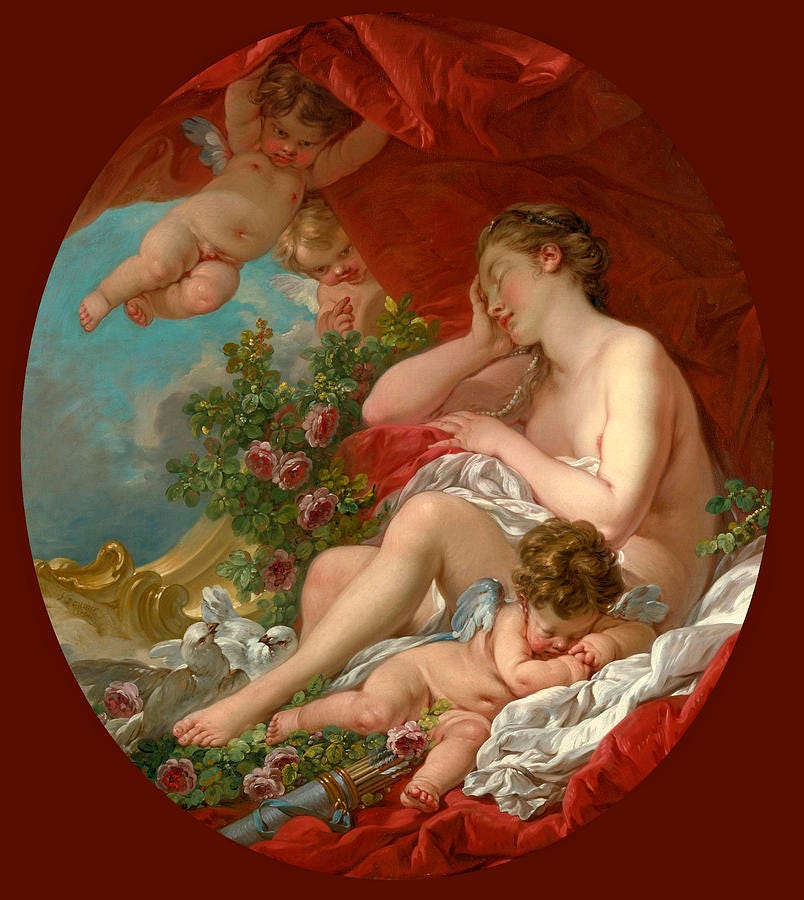
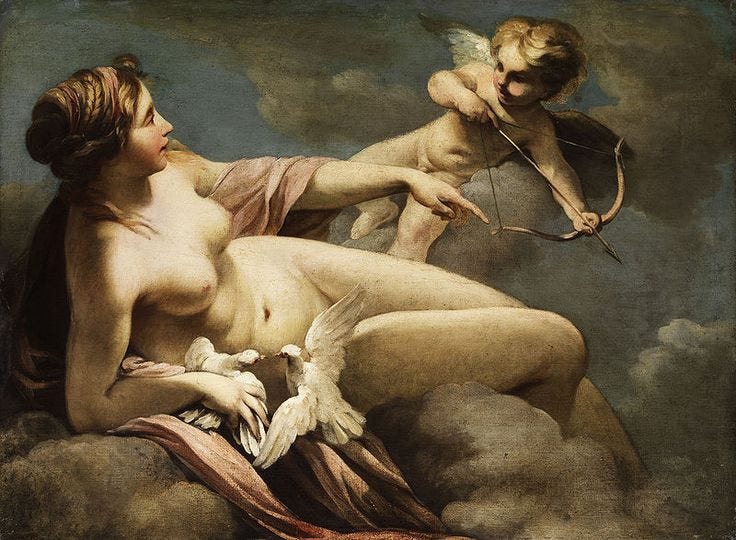
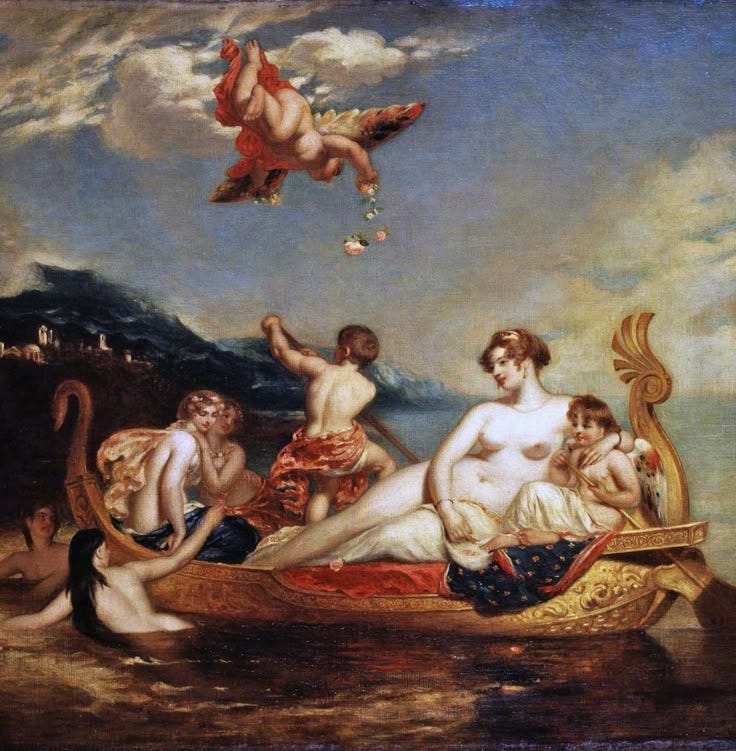
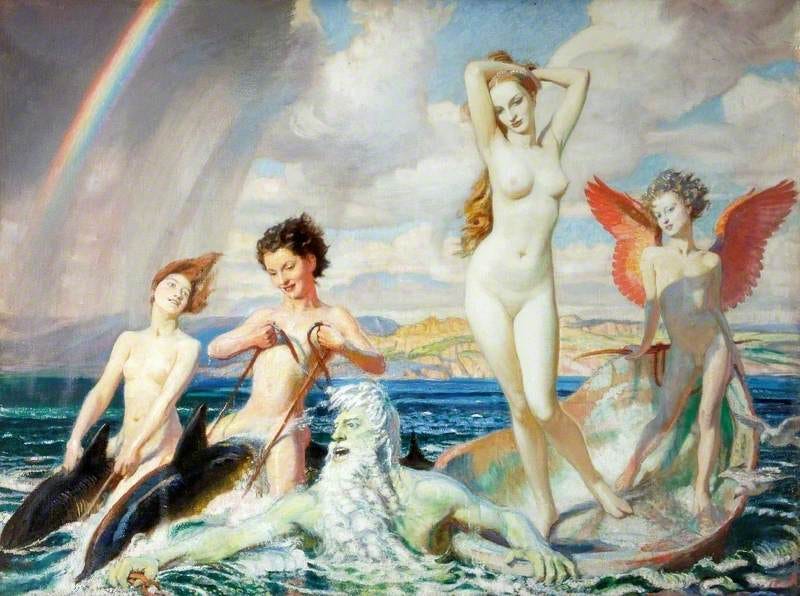
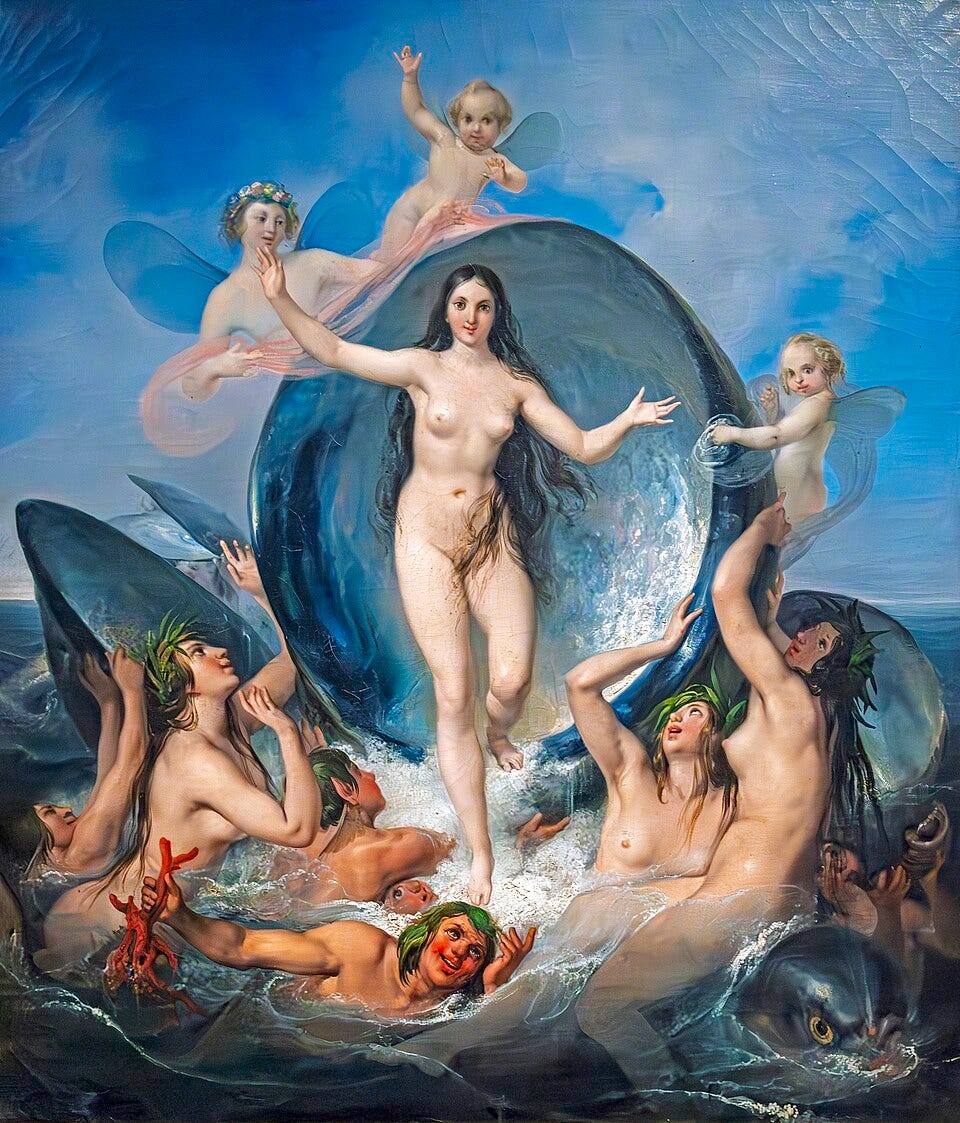
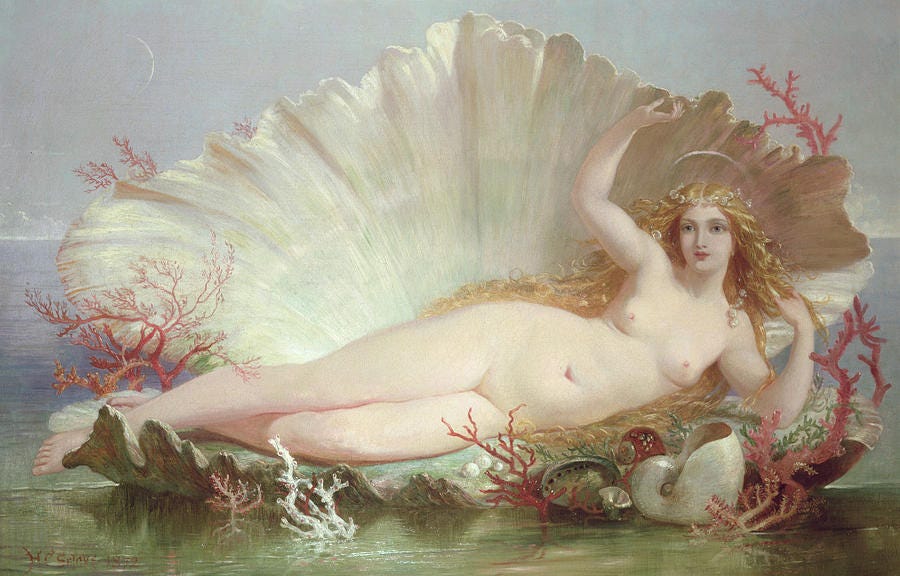
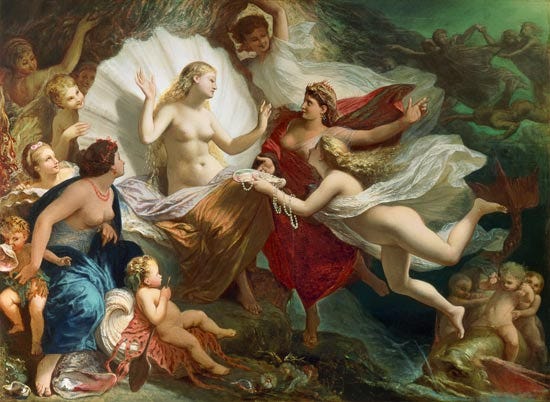
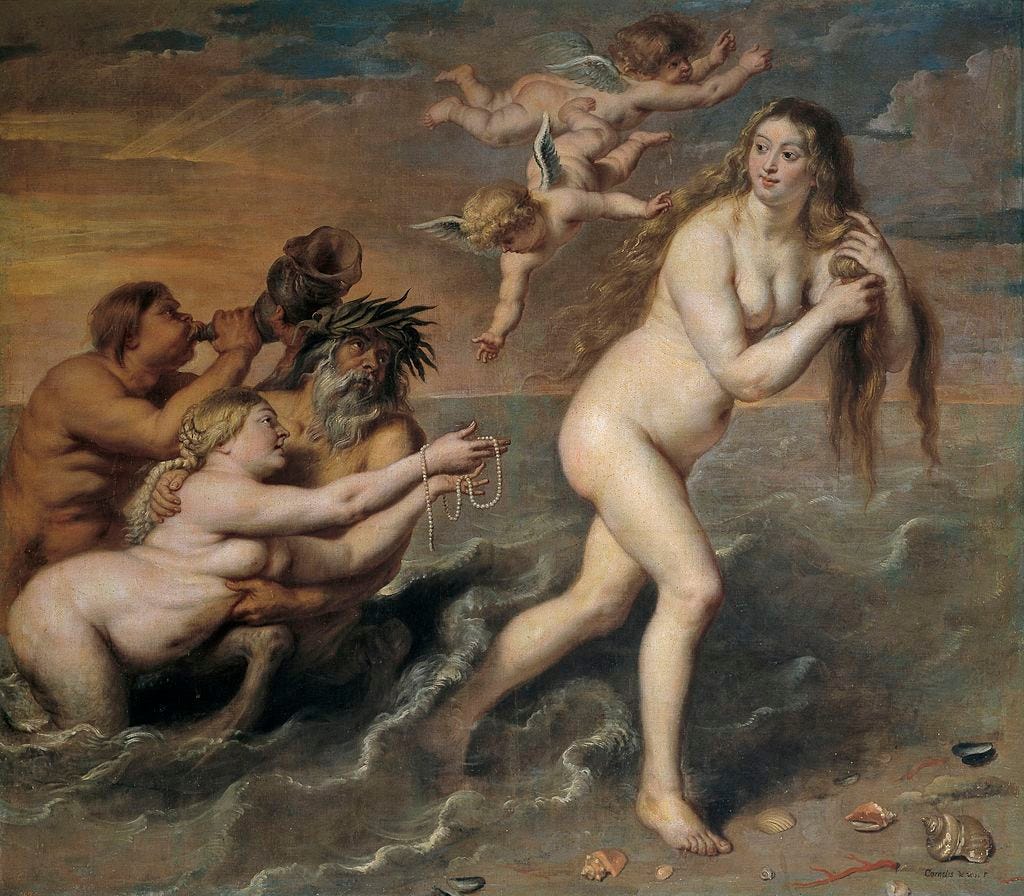
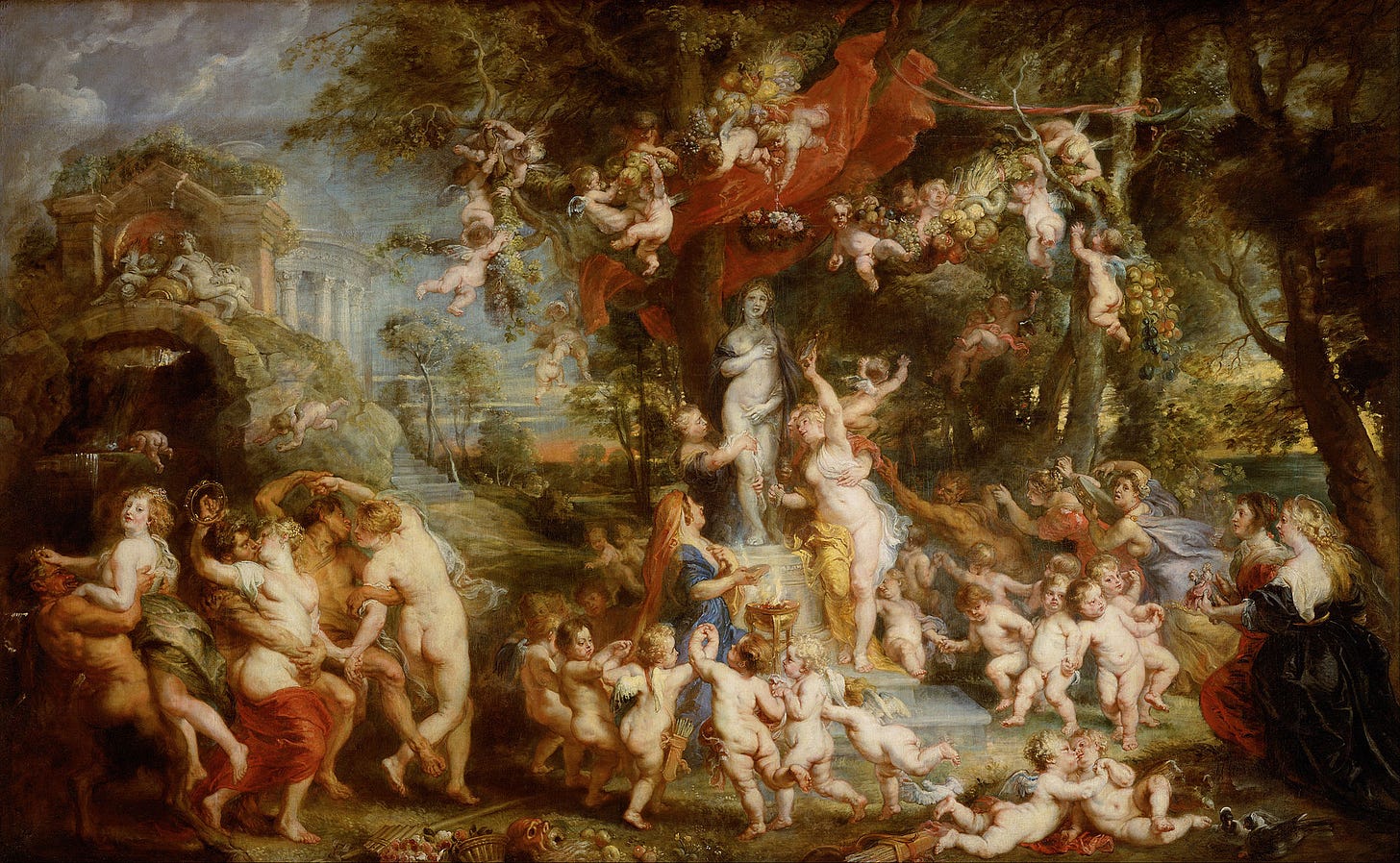
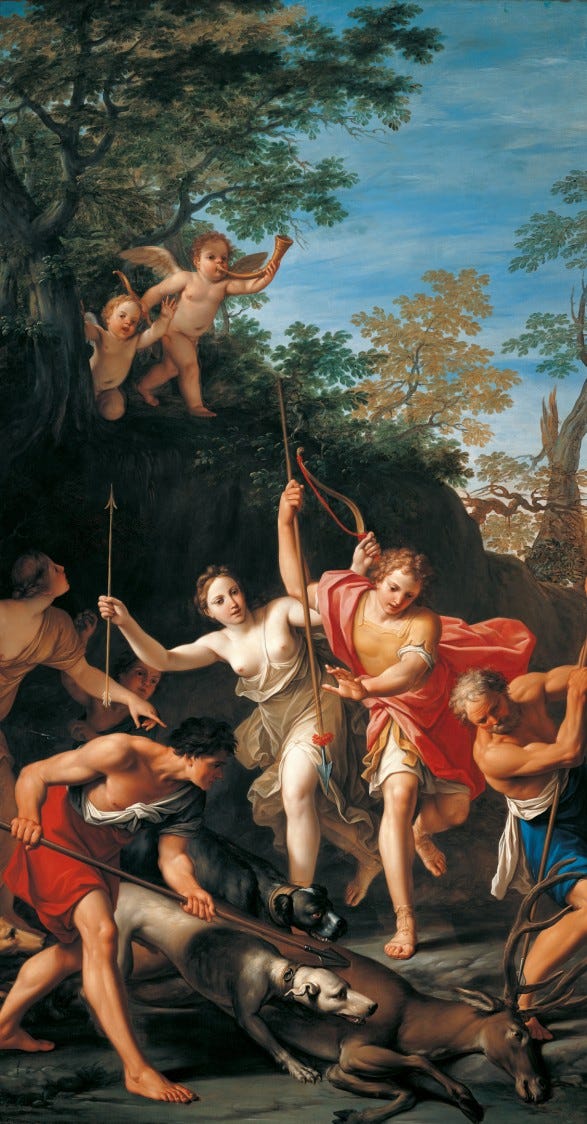
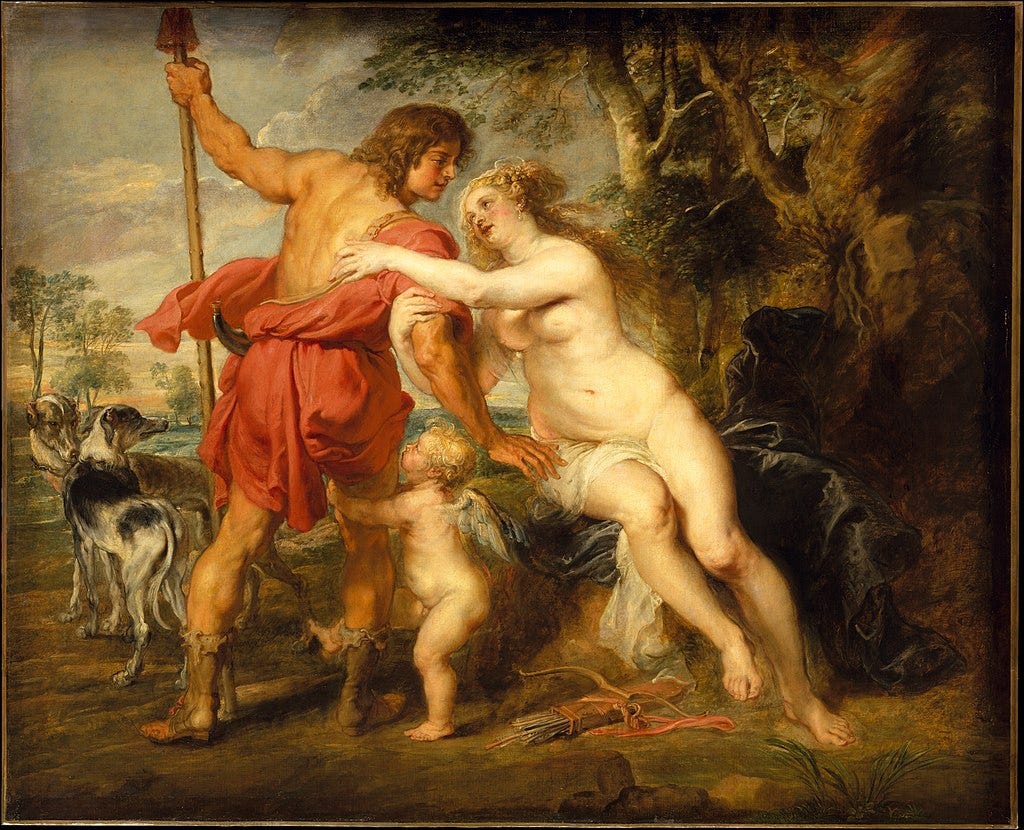
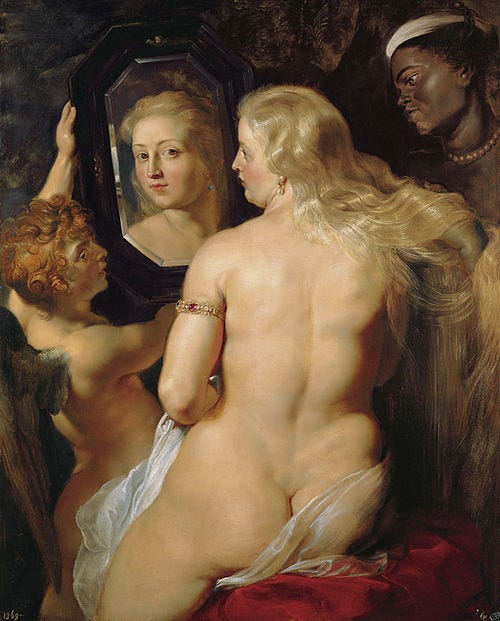
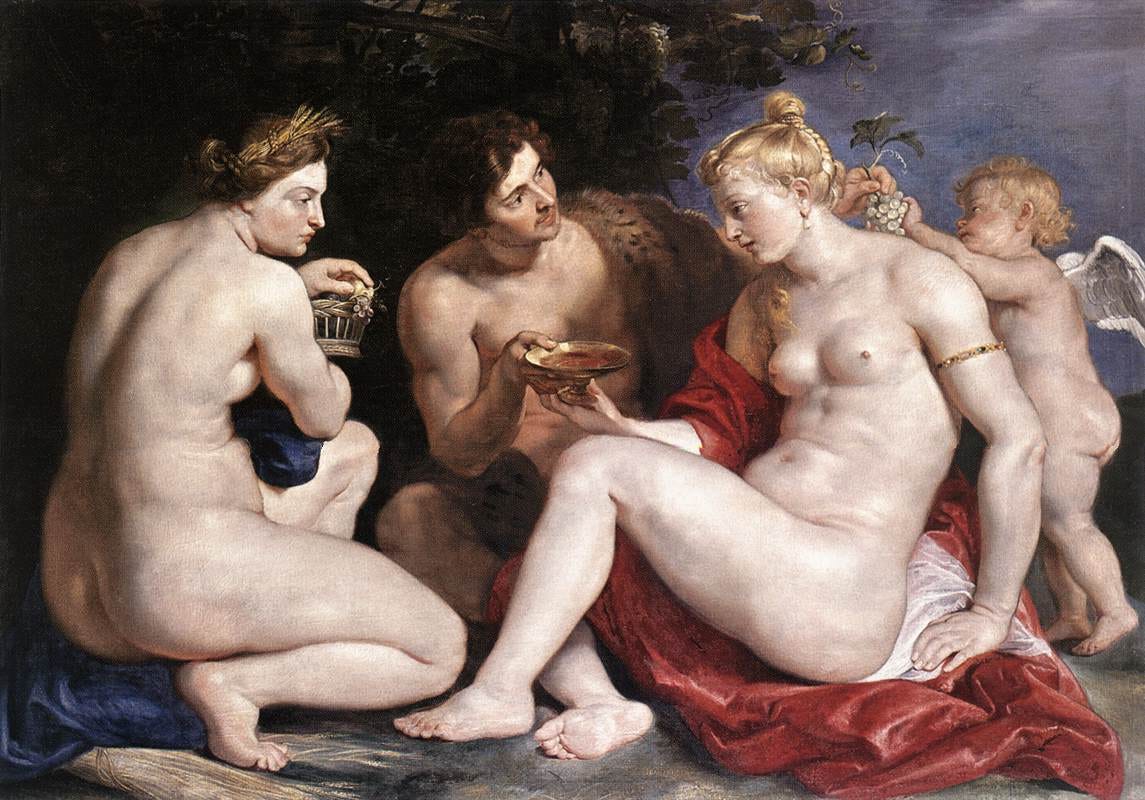

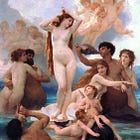
This is perfection Nadia - it’s one of the best things I’ve read from you! The poem and the line about beauty moving my cities! I love Greek mythology and you tell it like you were born to xx
my greek goddess! you are definitely the queen of myth. i loved this! the poem is beautiful, the stories are so captivating and the practices are beautiful! 🩷